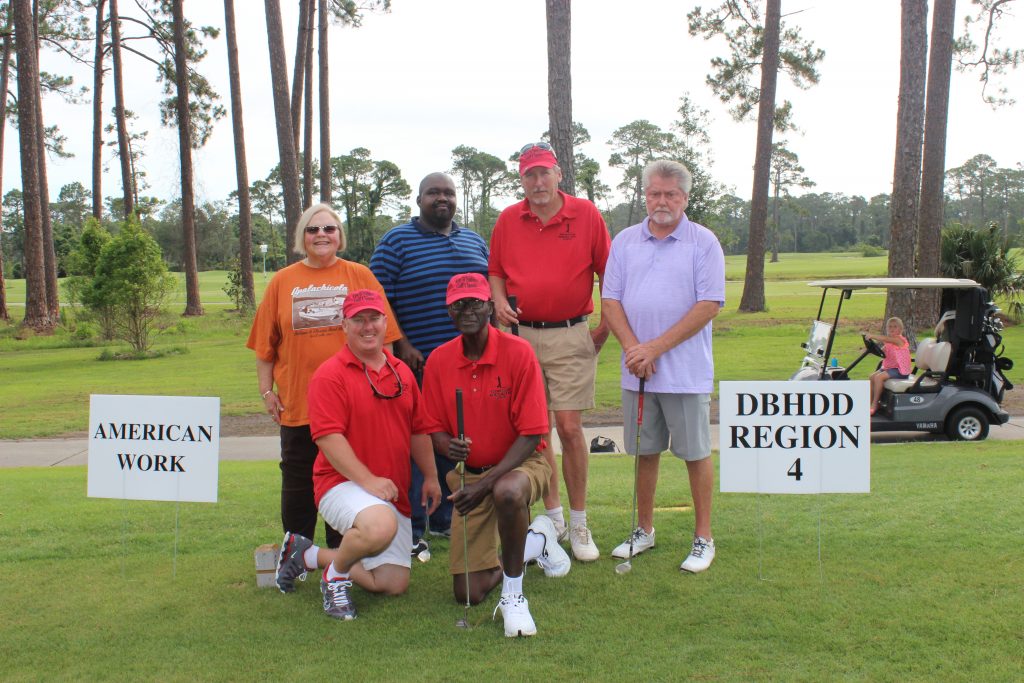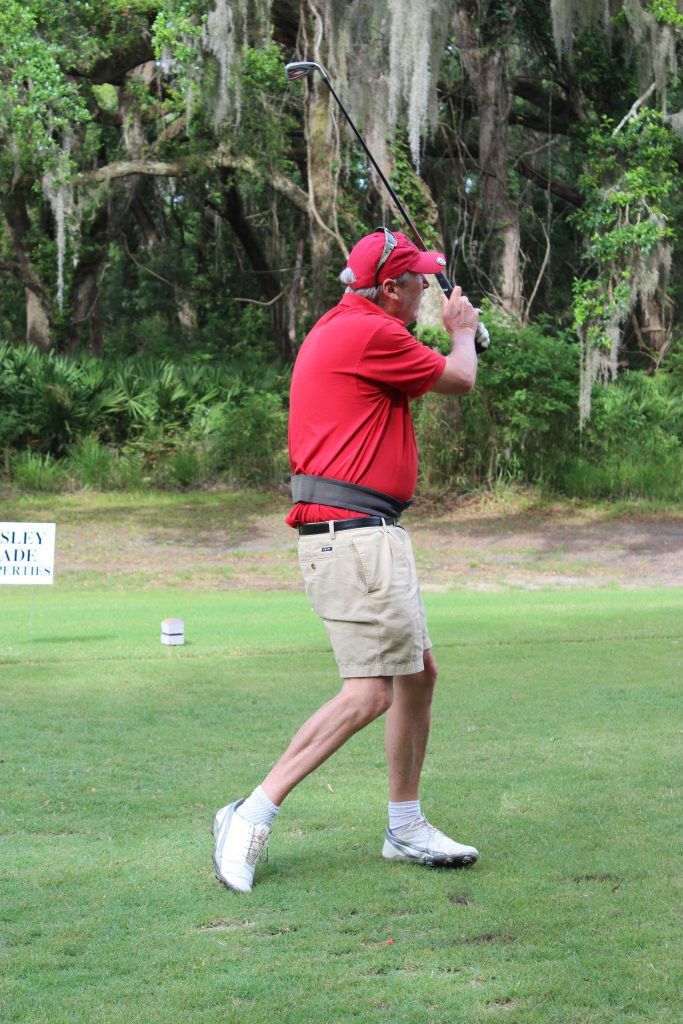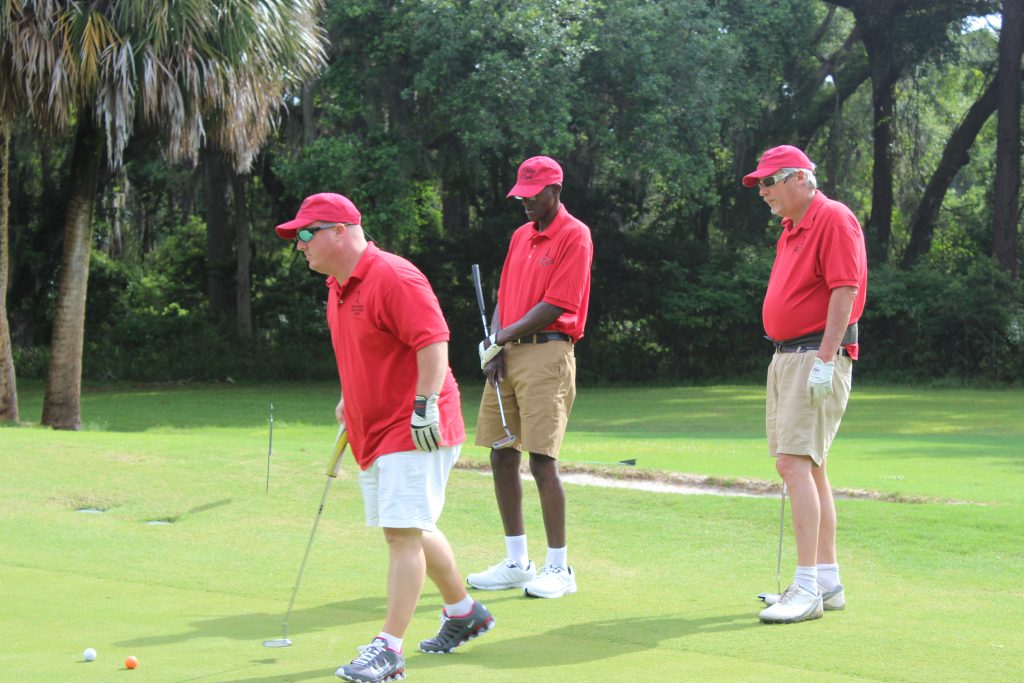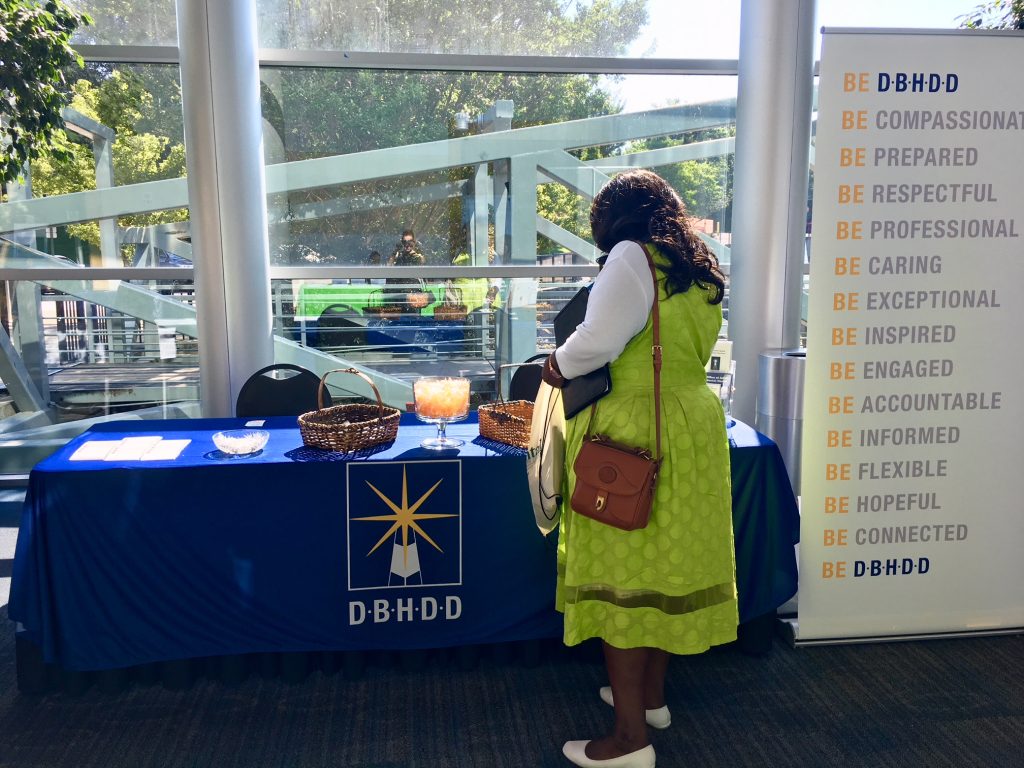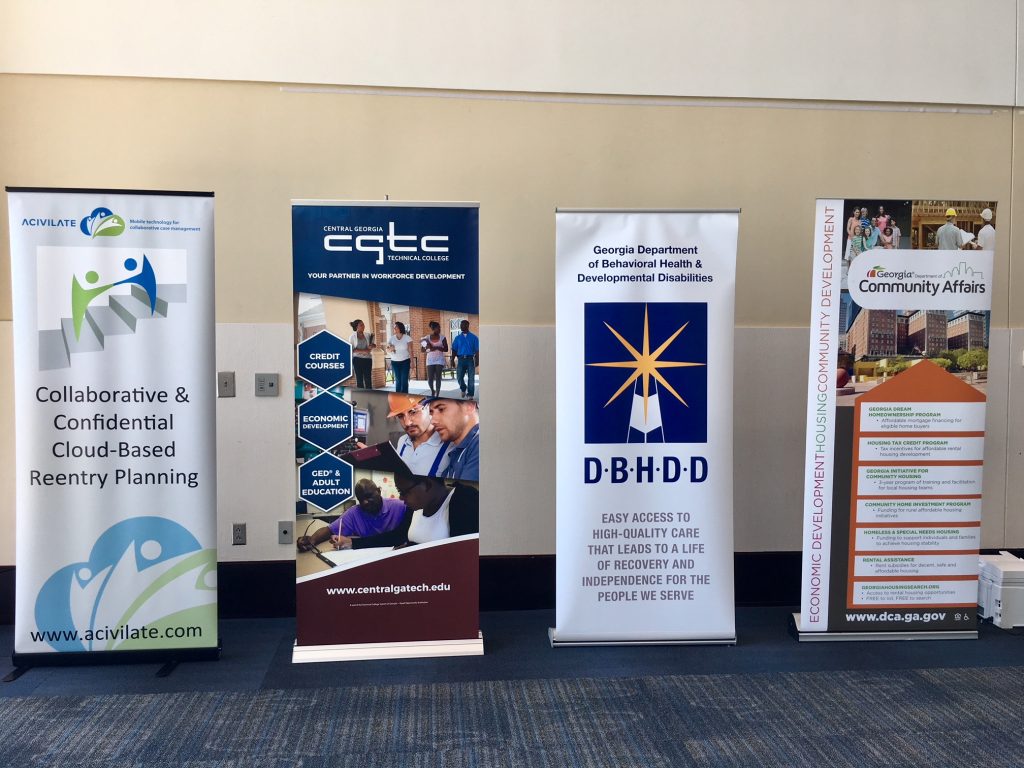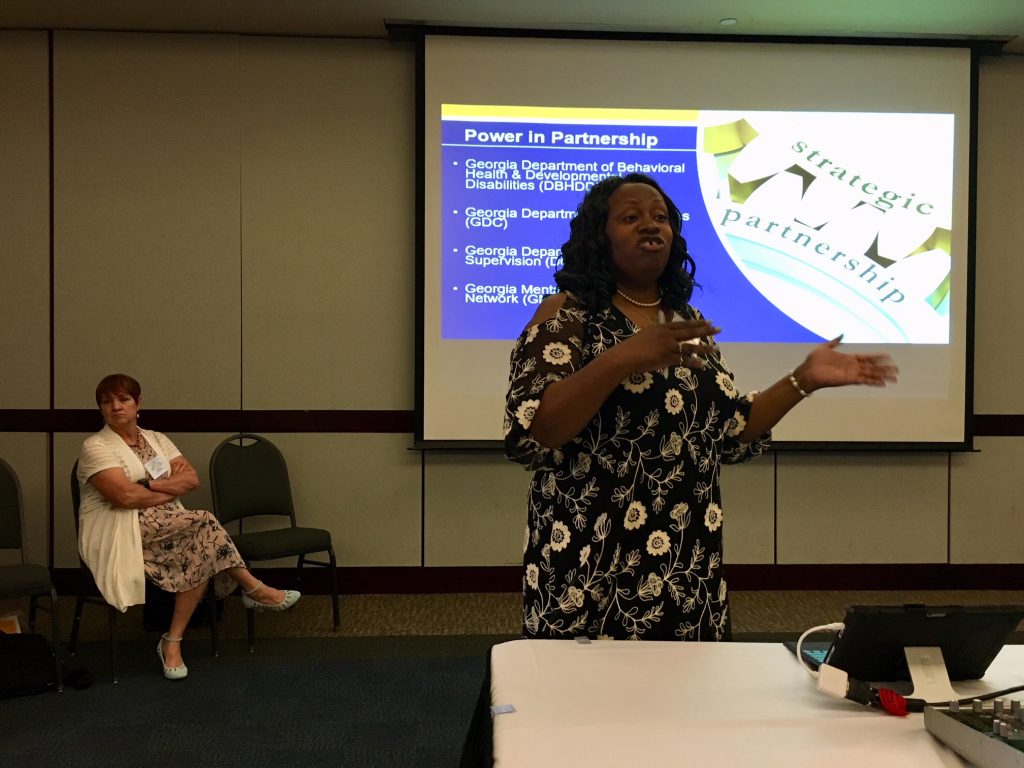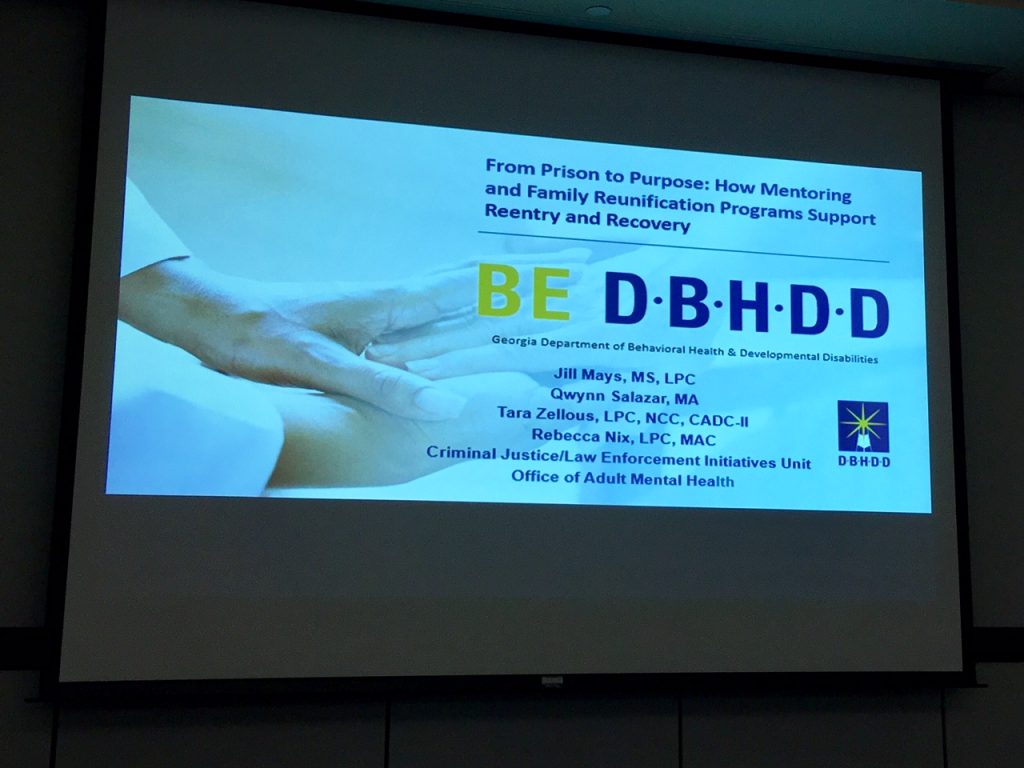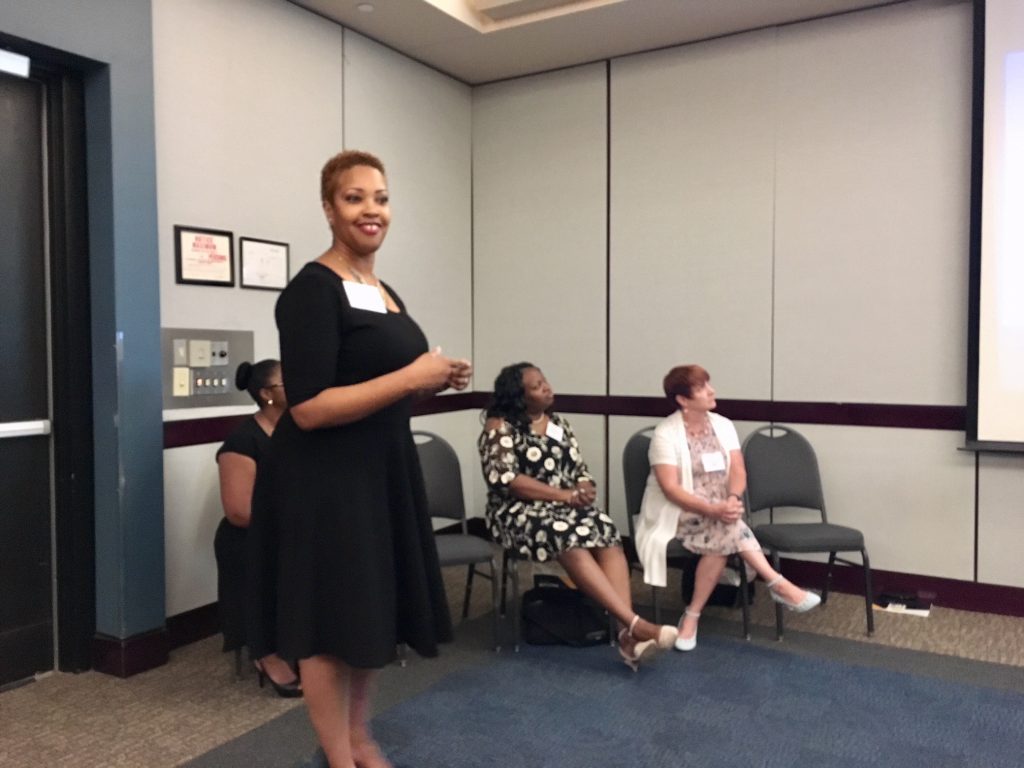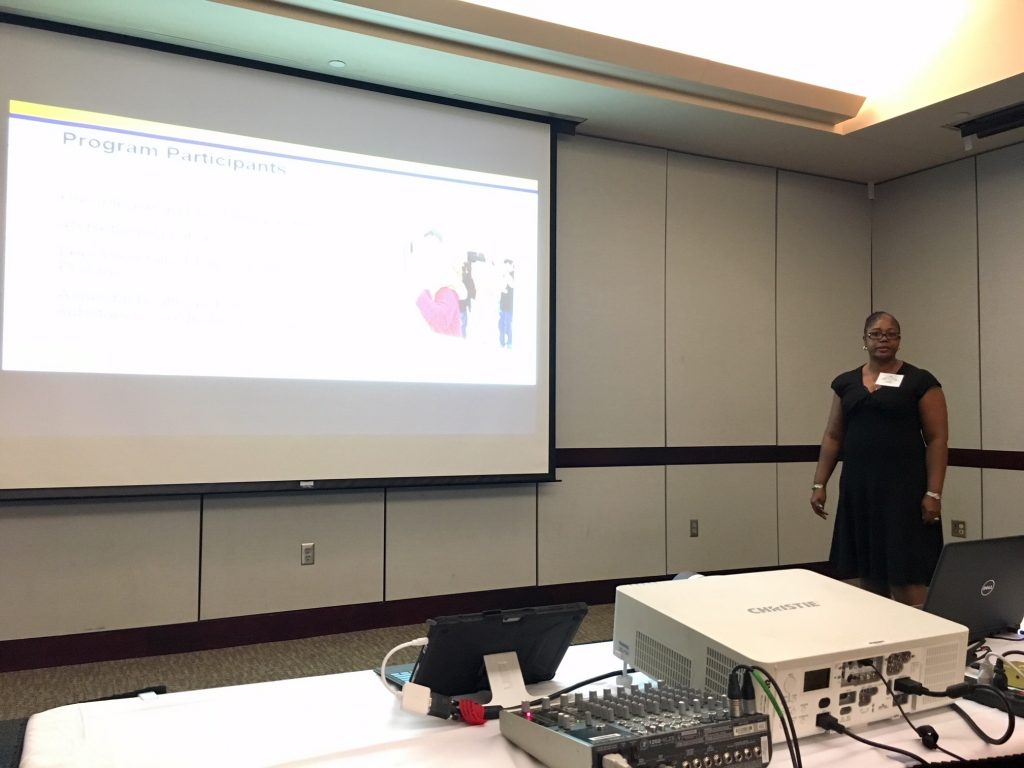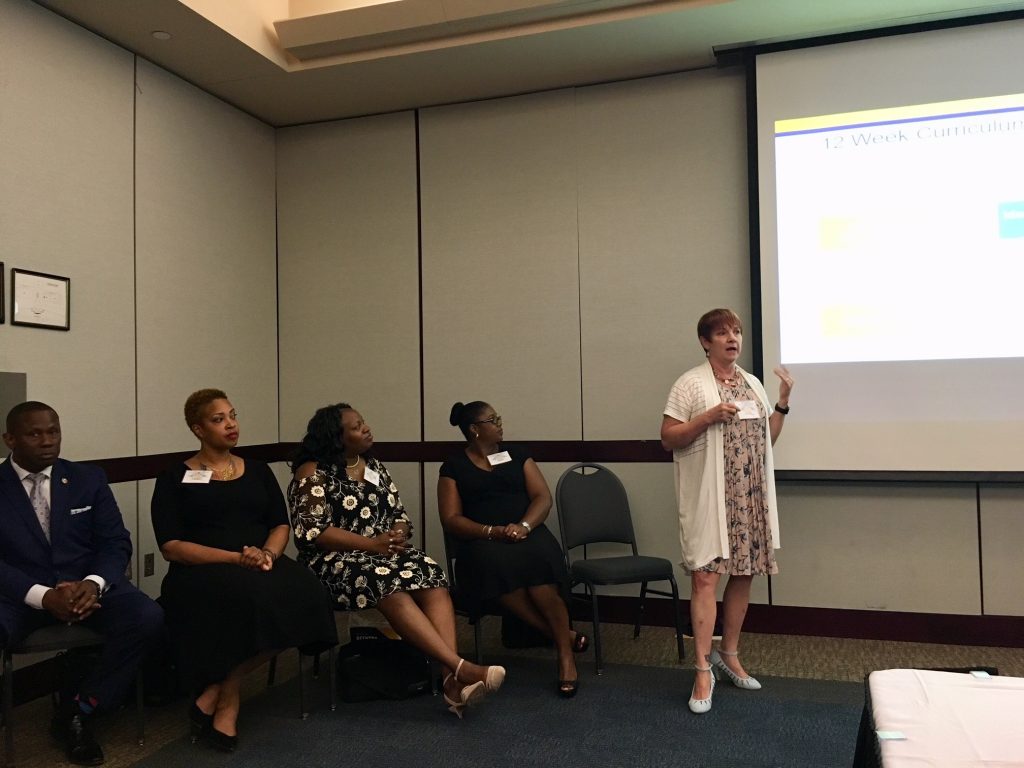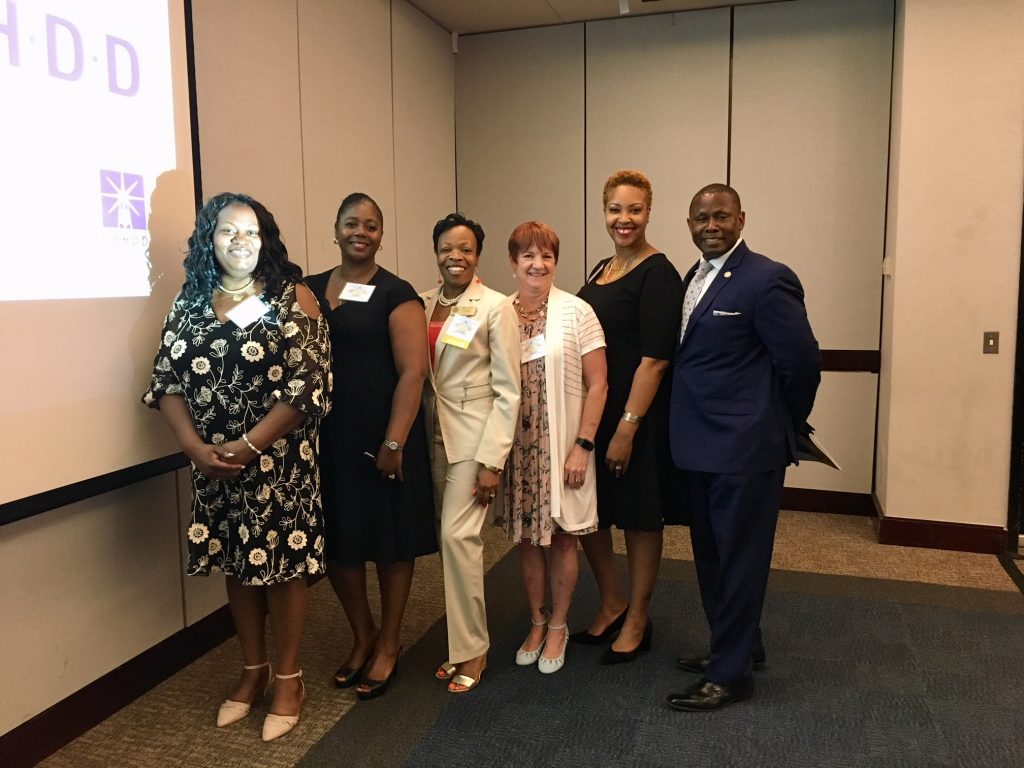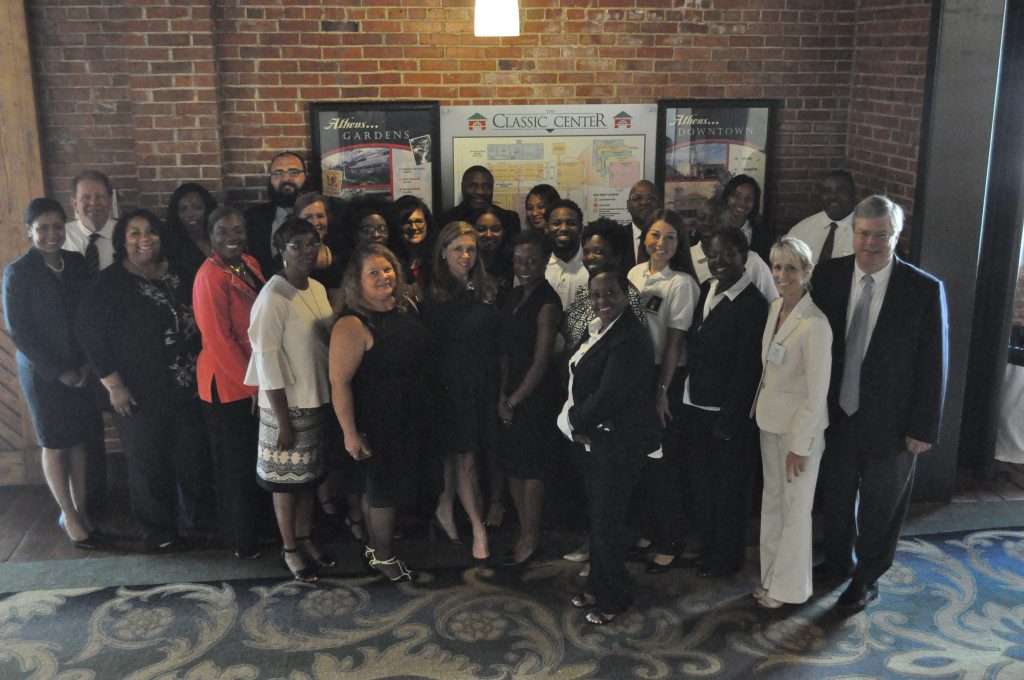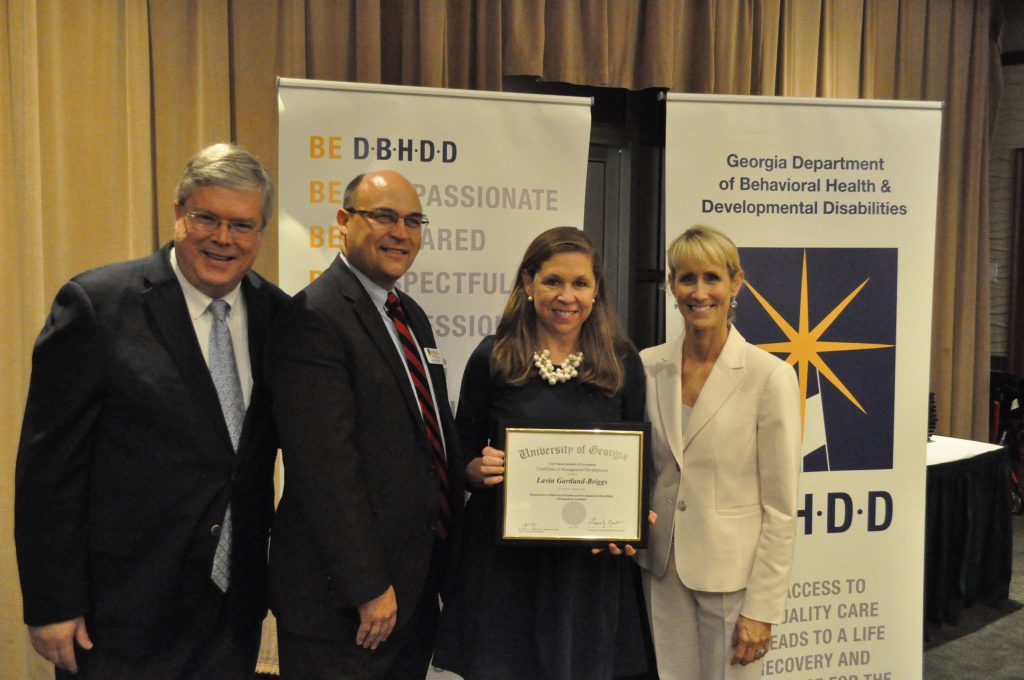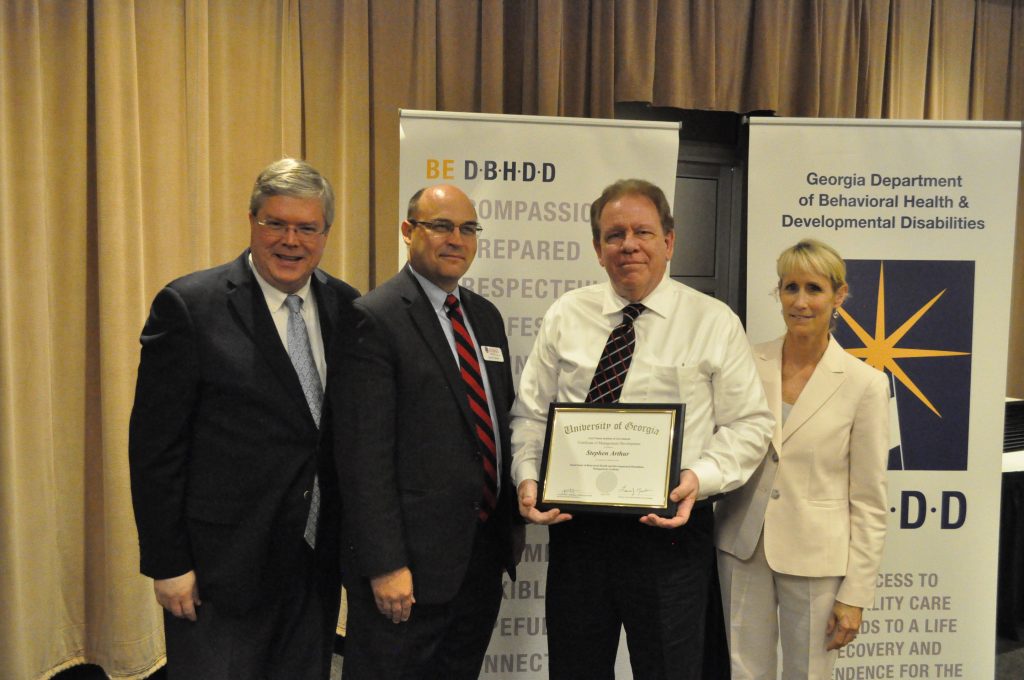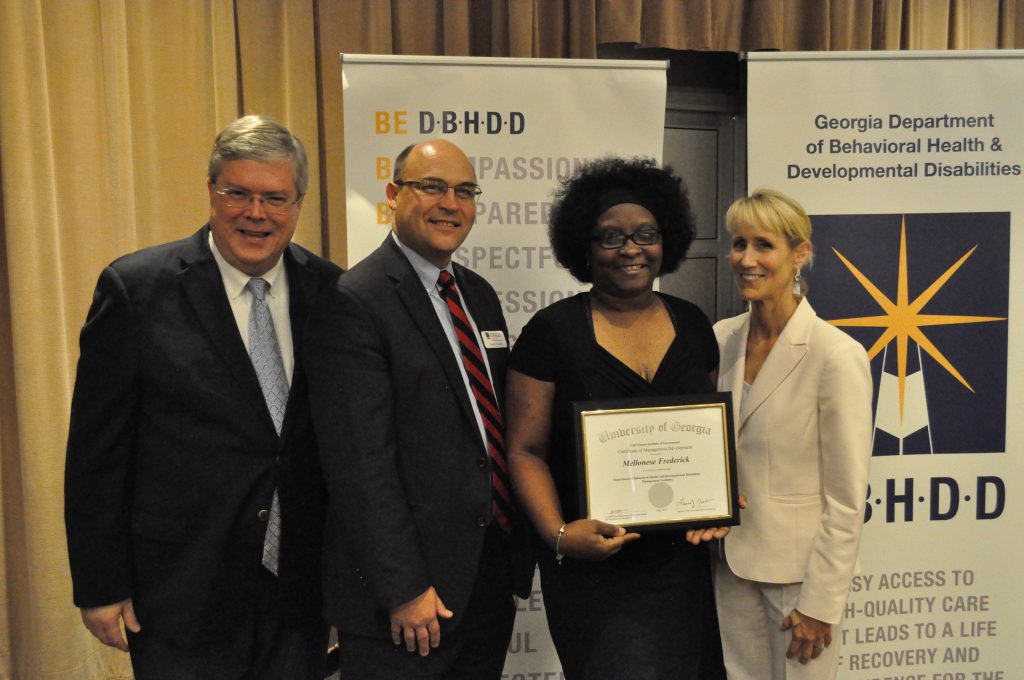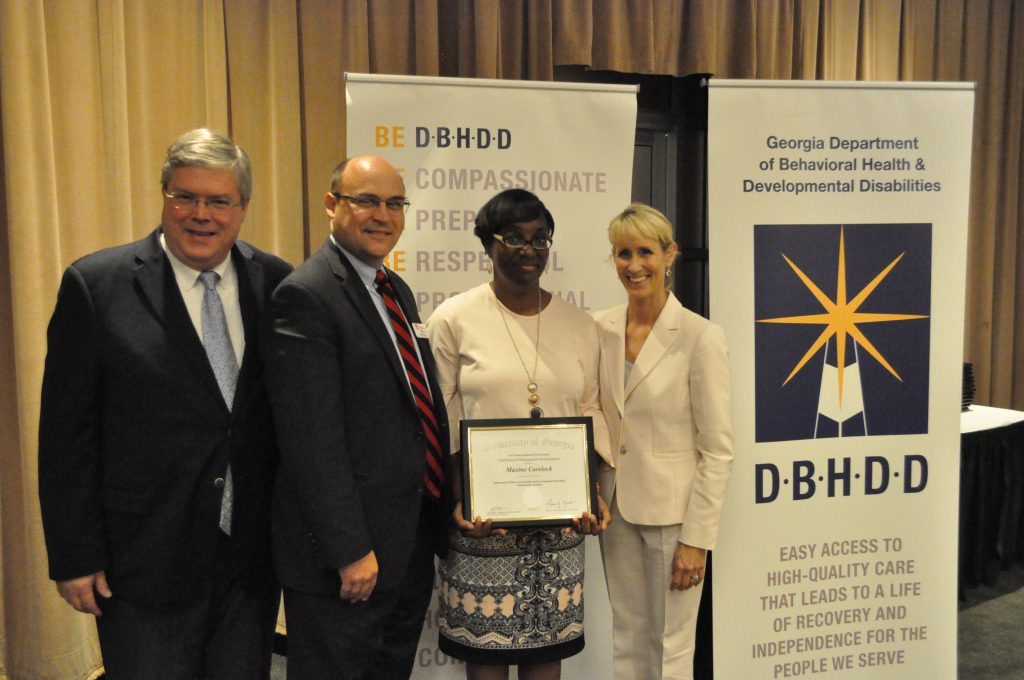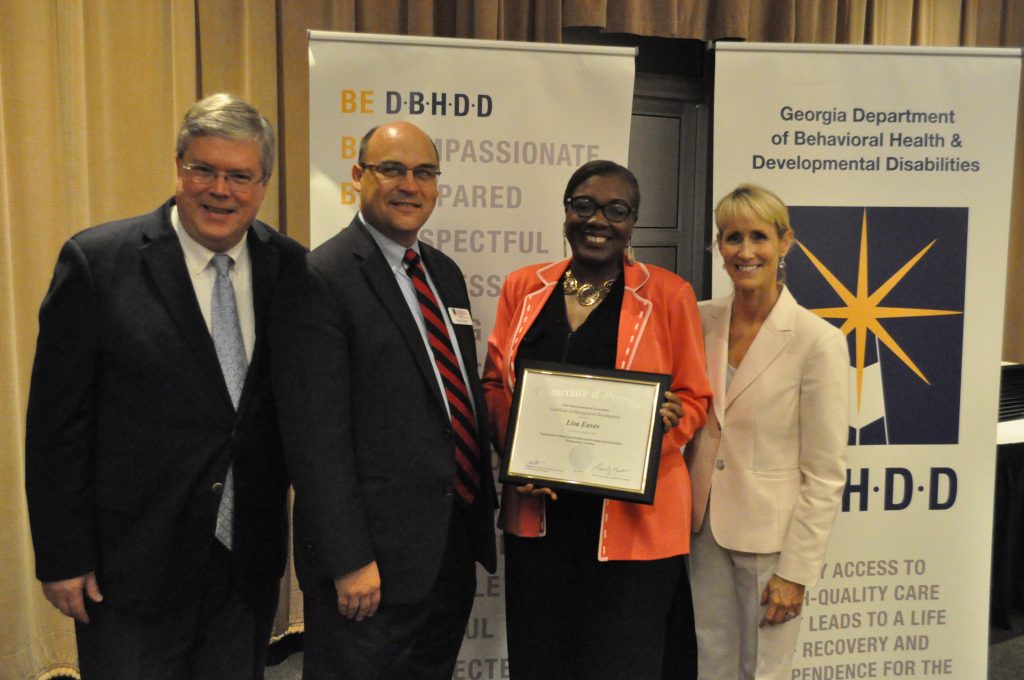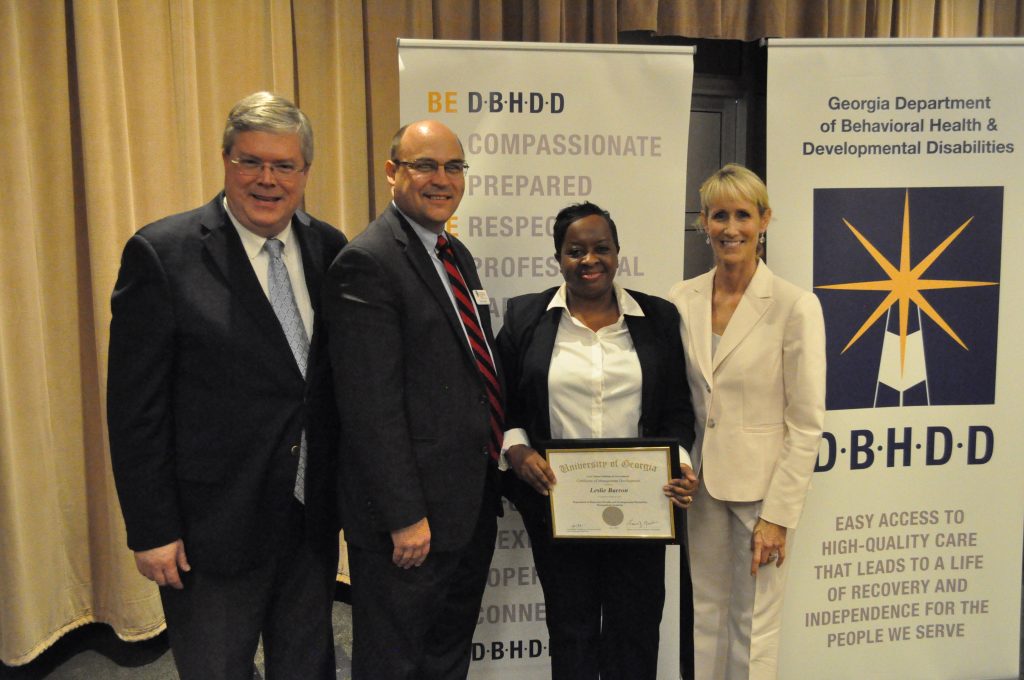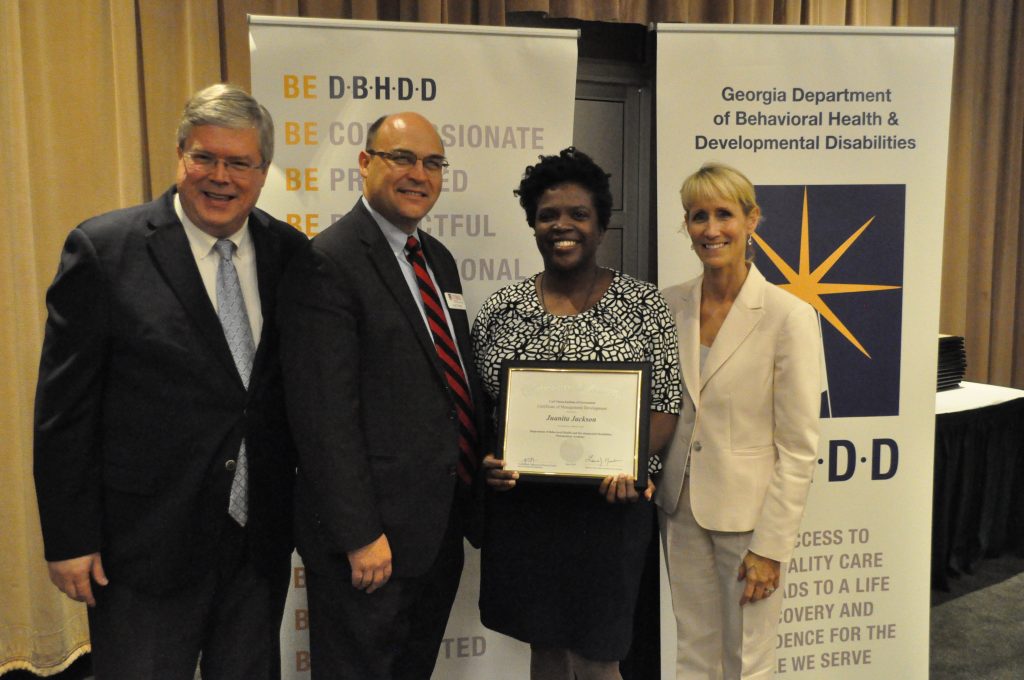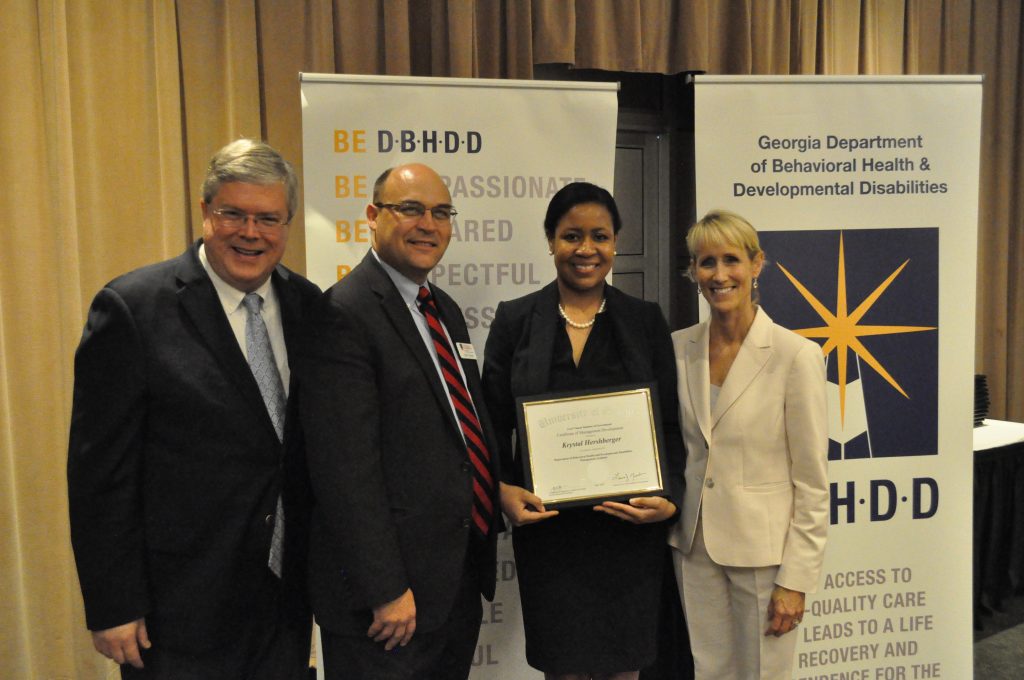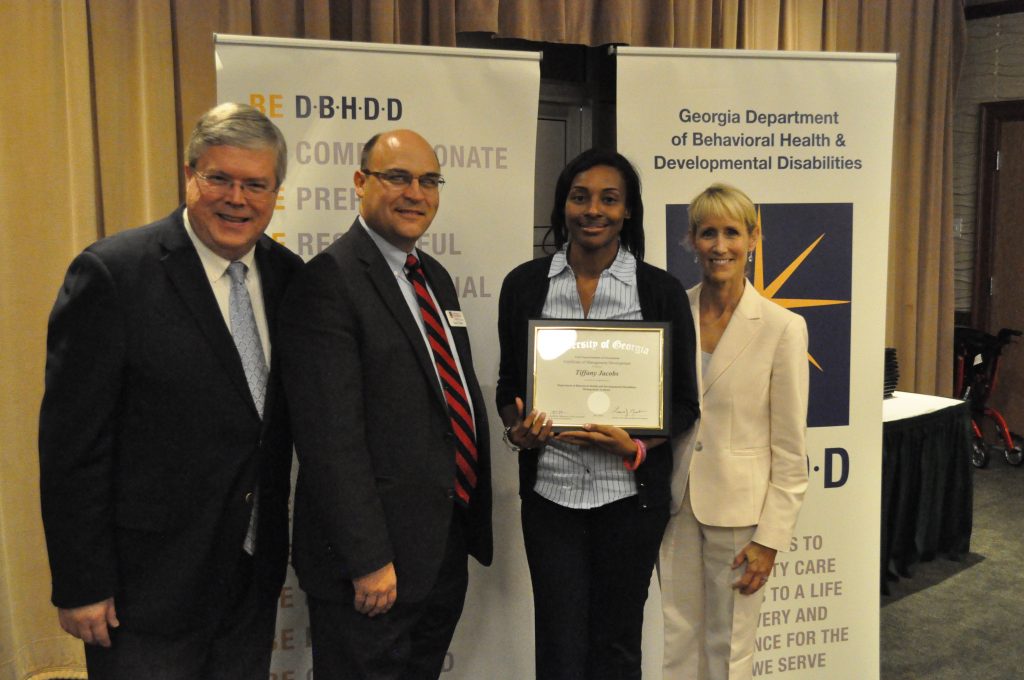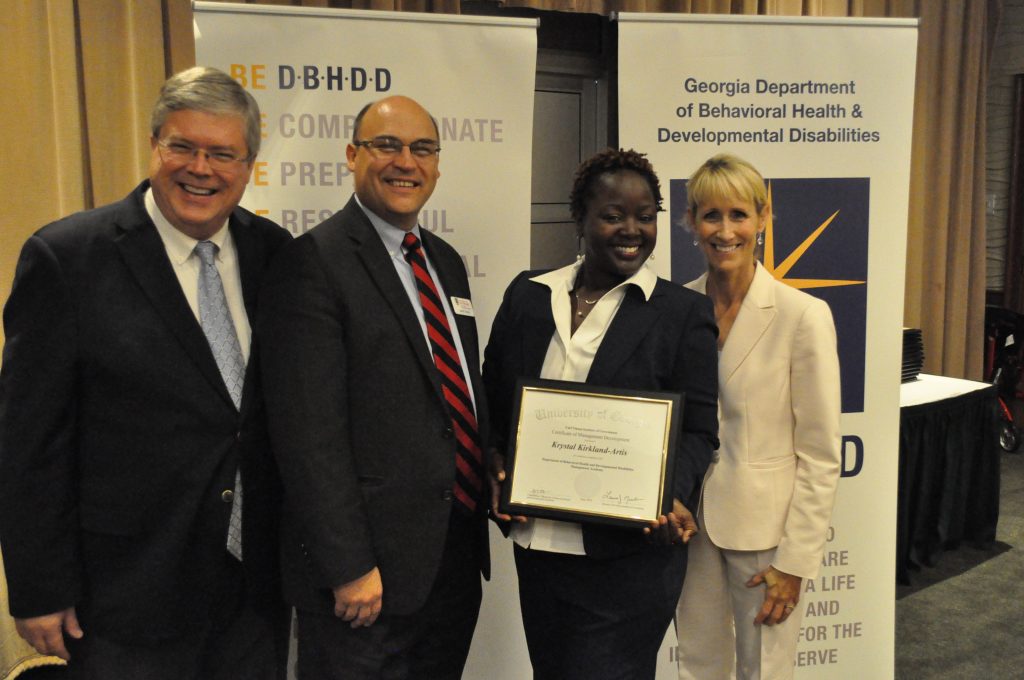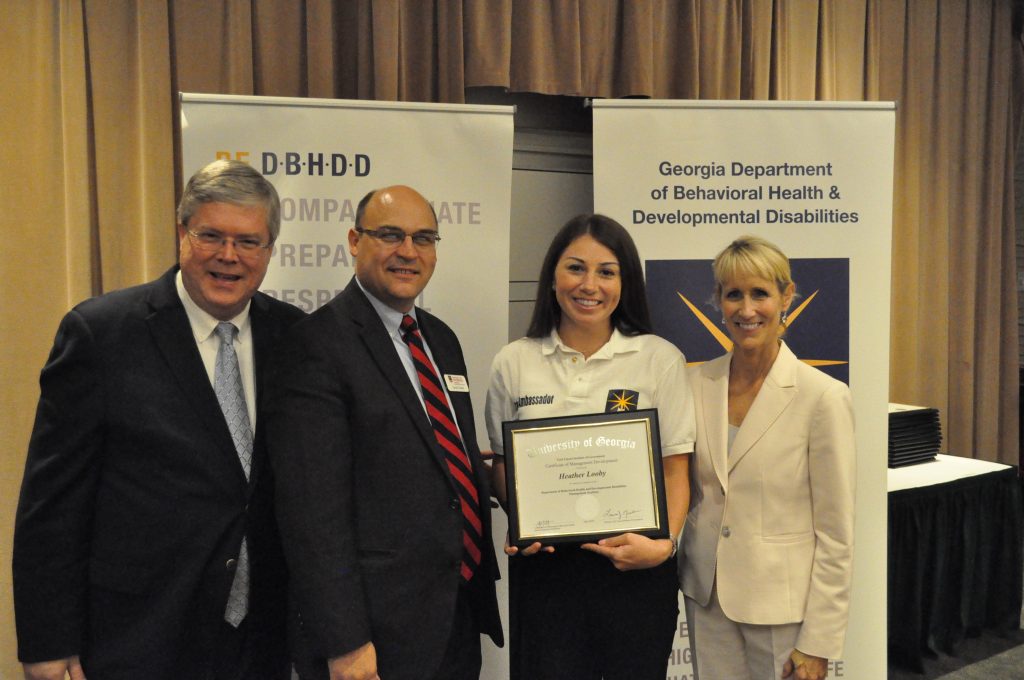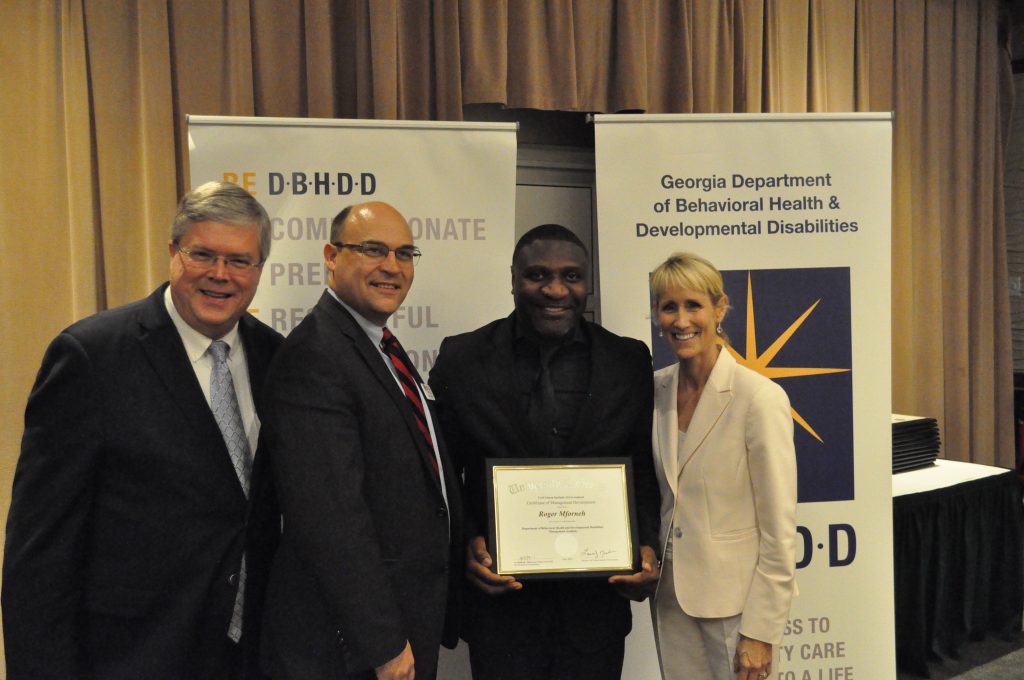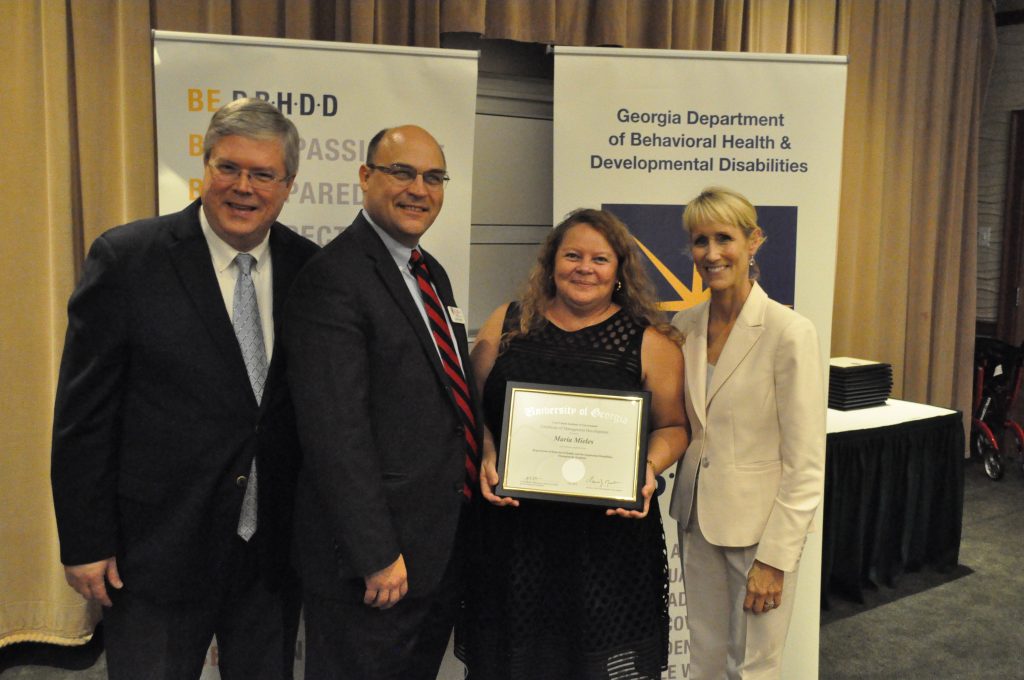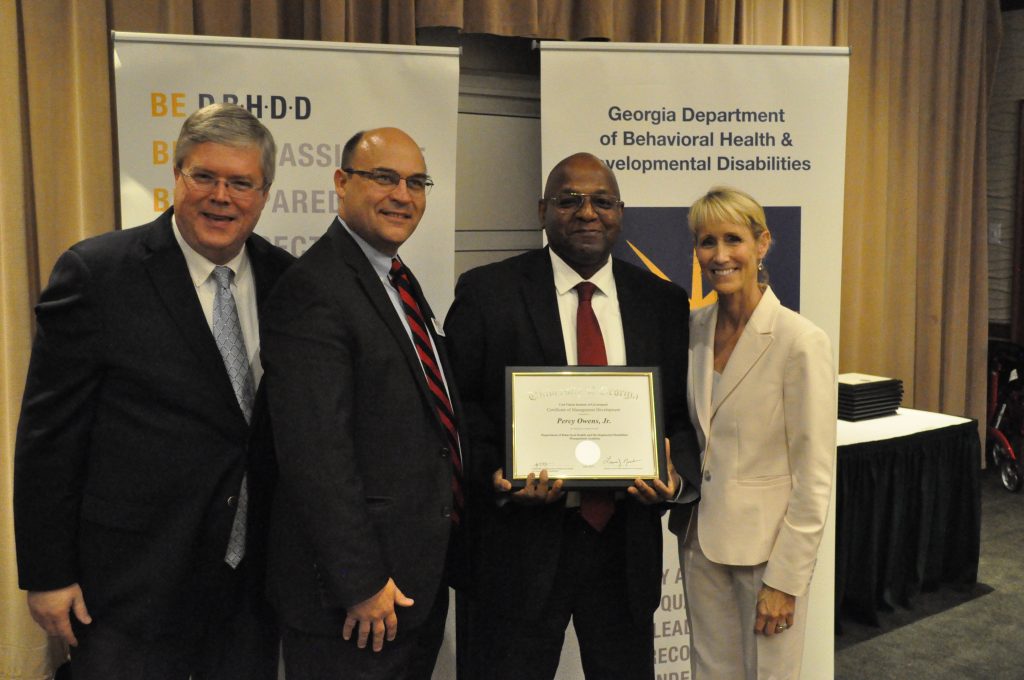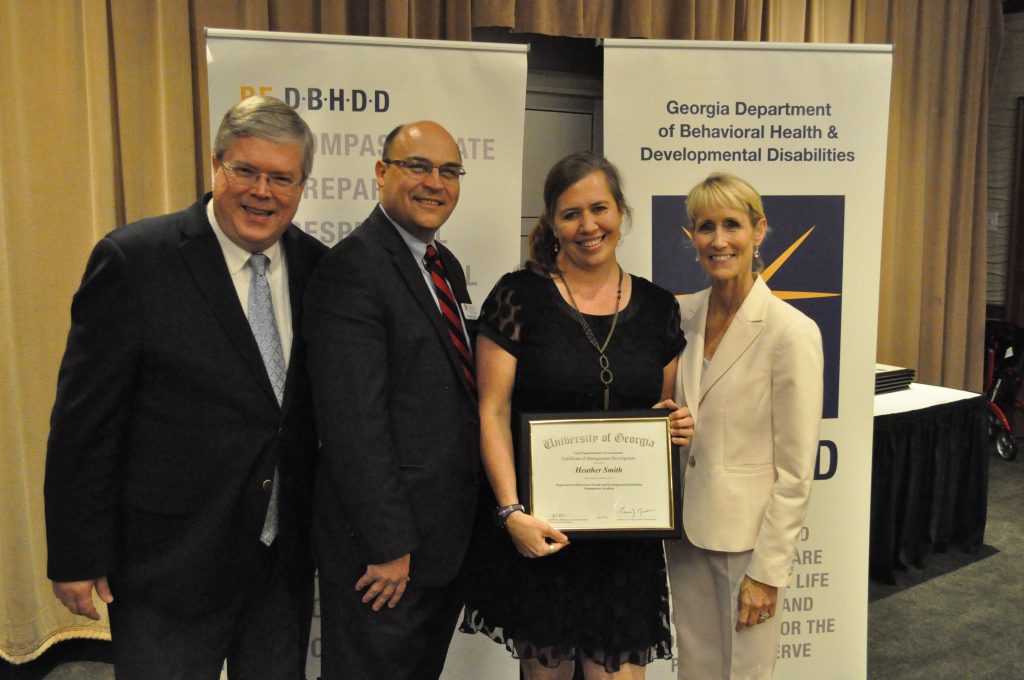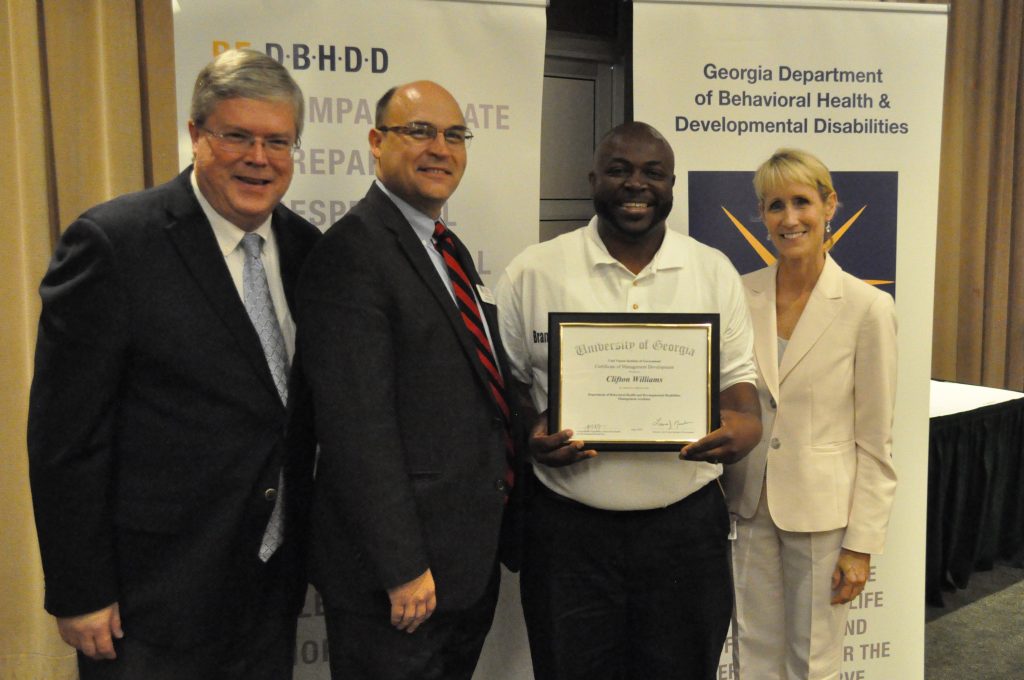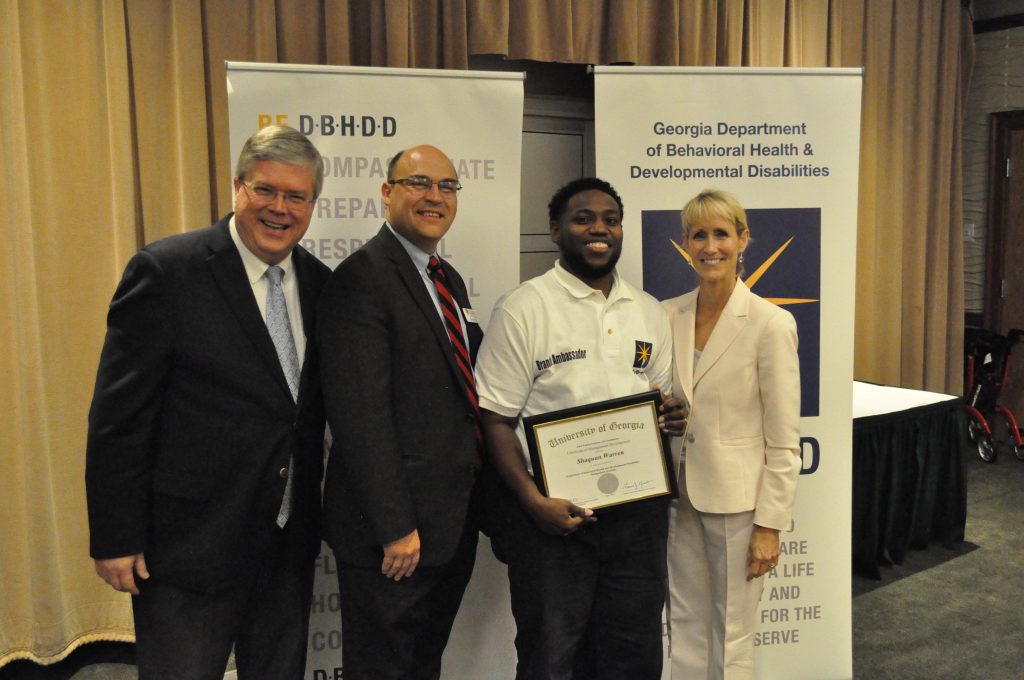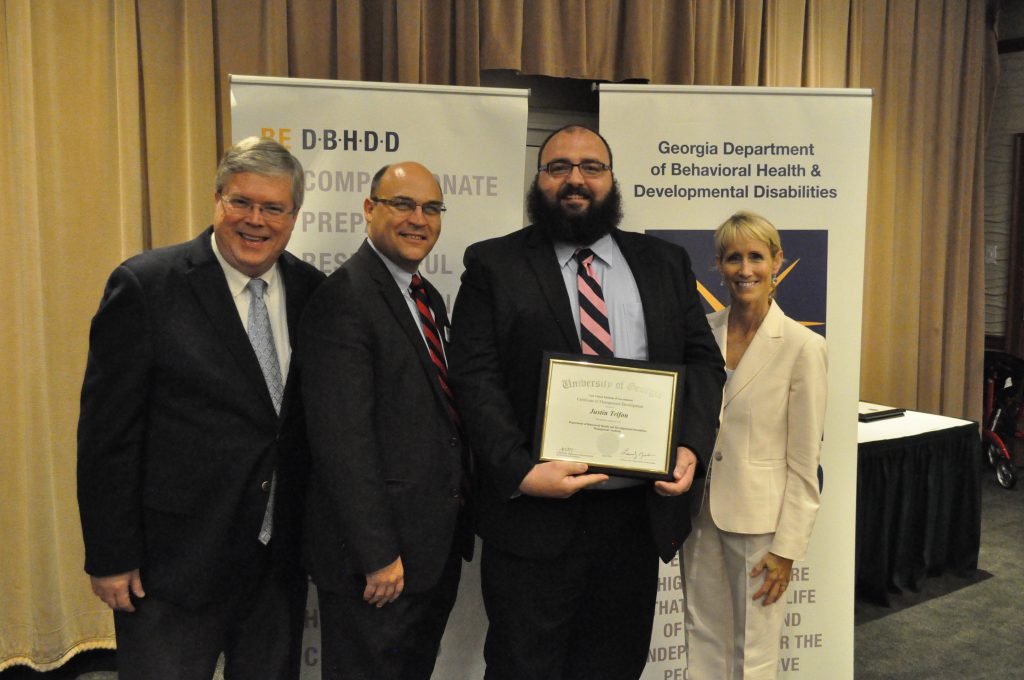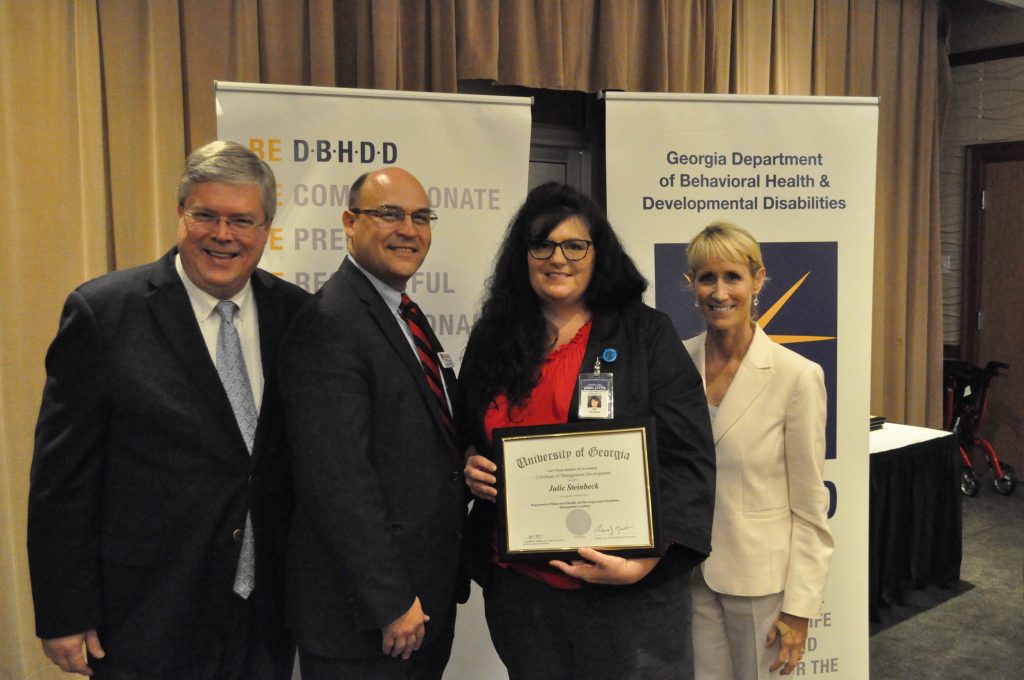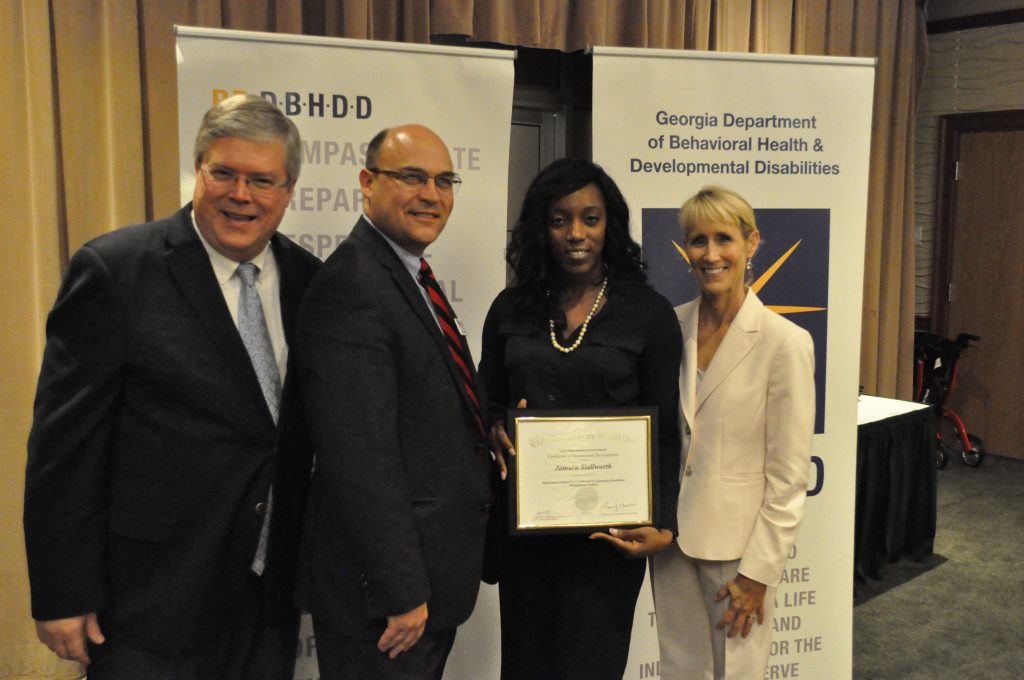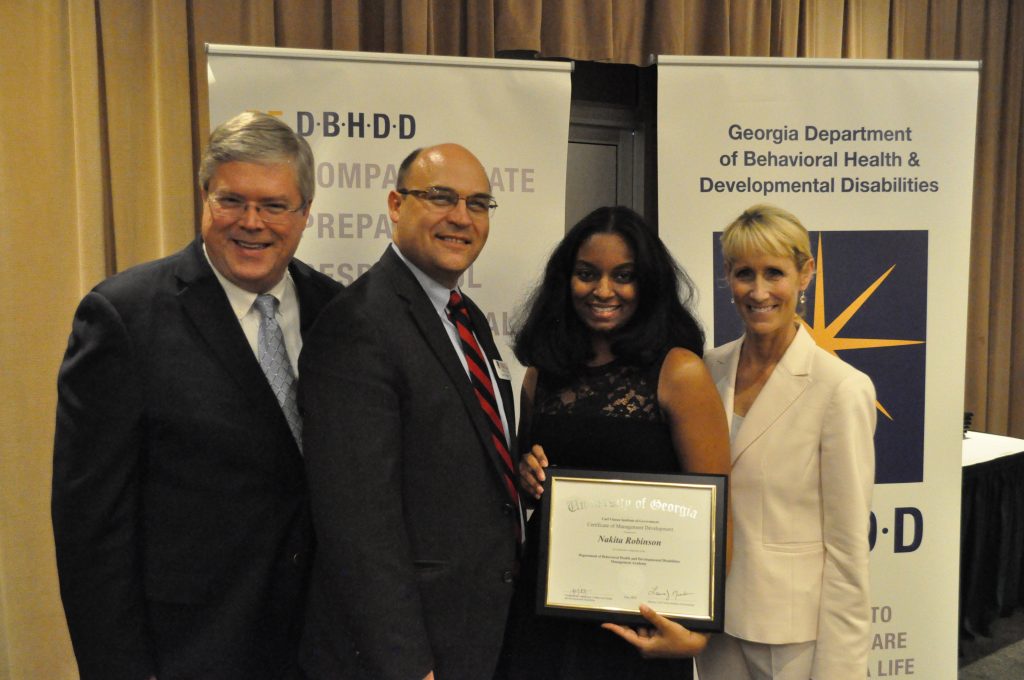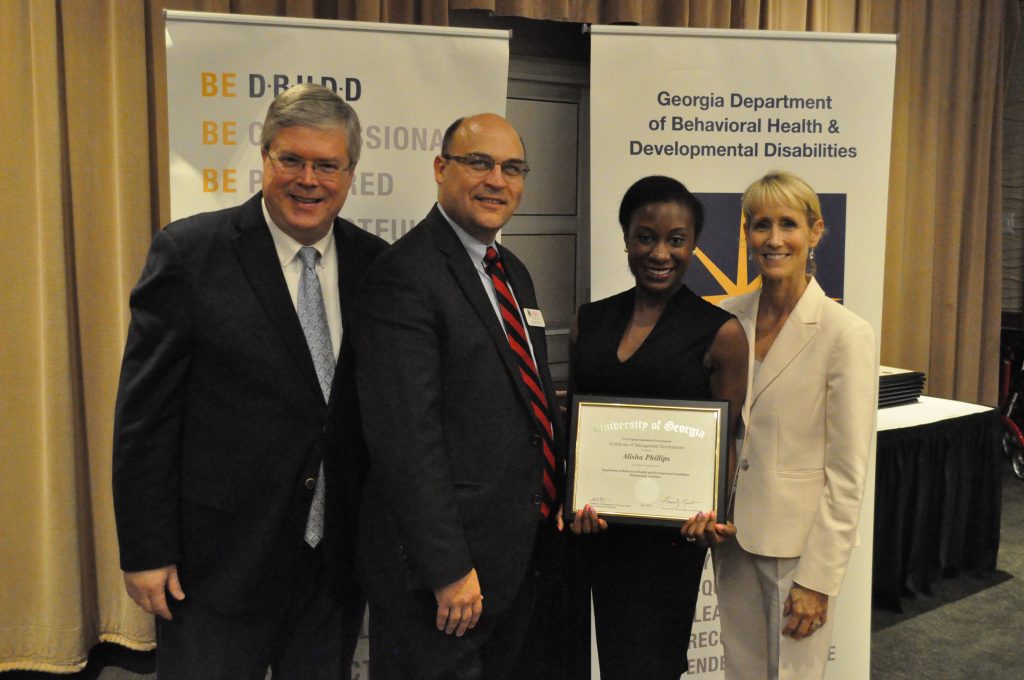Category: Events
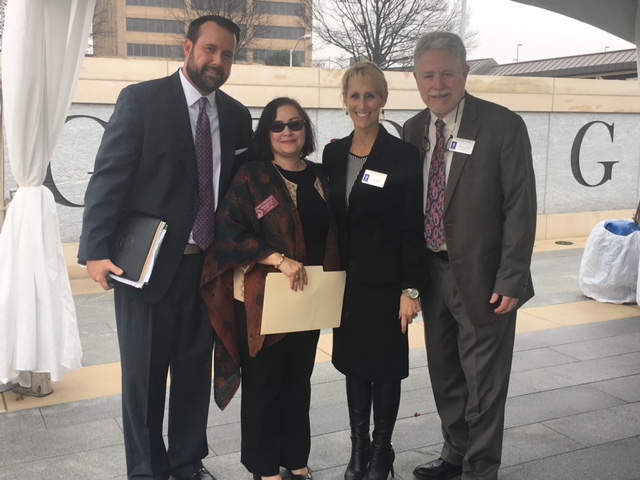
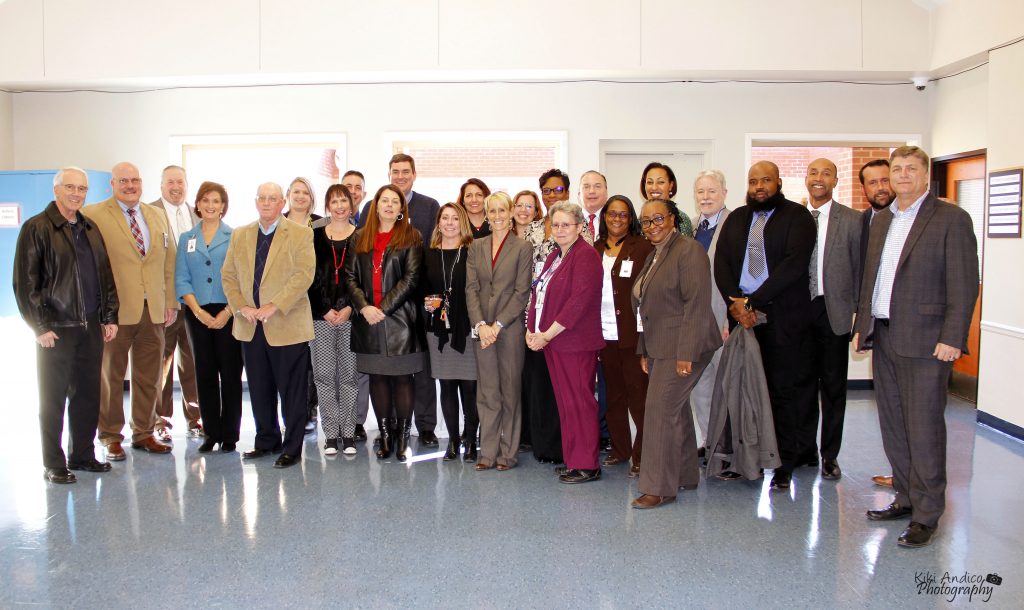
front row – Larry Thompson (Houston Cty Commissioner), Dr. Mark Scott, Houston County Superintendent, Beth Ragan, Tommy Stalnaker , Chairman Houston County Commissioner, Gail Robinson, Houston County Commissioner, Judge Katie Lumsden, Superior Court, Jennifer Trawick, CSU Administrator, Judy Fitzgerald, Sue Davis, CFO, Cynthia Mathis, HR Director, and Rogea Gaymon, Outpatient Clinical Director.
Back row – Stephen Thublin, Assistant Superintendent for Finance & Business Operation of Houston County Schools, Katie Barrs, MH Accountability Court Coord, Dr. Ricky Rogers, Houston County Assistant Superintendent, Charles Briscoe, Houston Health Care COO/Acting CEO, Chrystal Wasden, Specialty Services Clinical Director, Angela Holt, COO, DBHDD, Amy Howard, DBHDD and Mike Ragsdale, IDD Director.
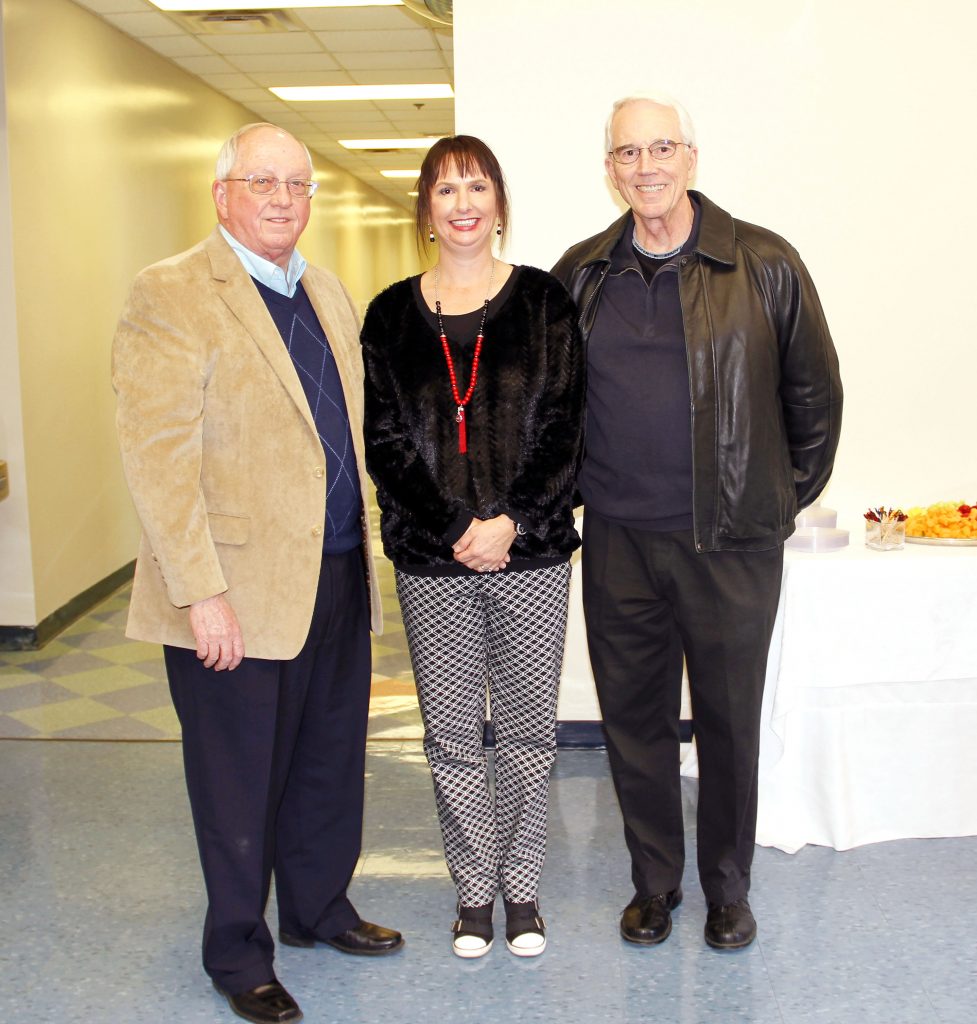
Chairman Tommy Stalnaker, Houston County Commissioner
Gail Robinson, Houston County Commissioner
Larry Thomson, Houston County Commissioner
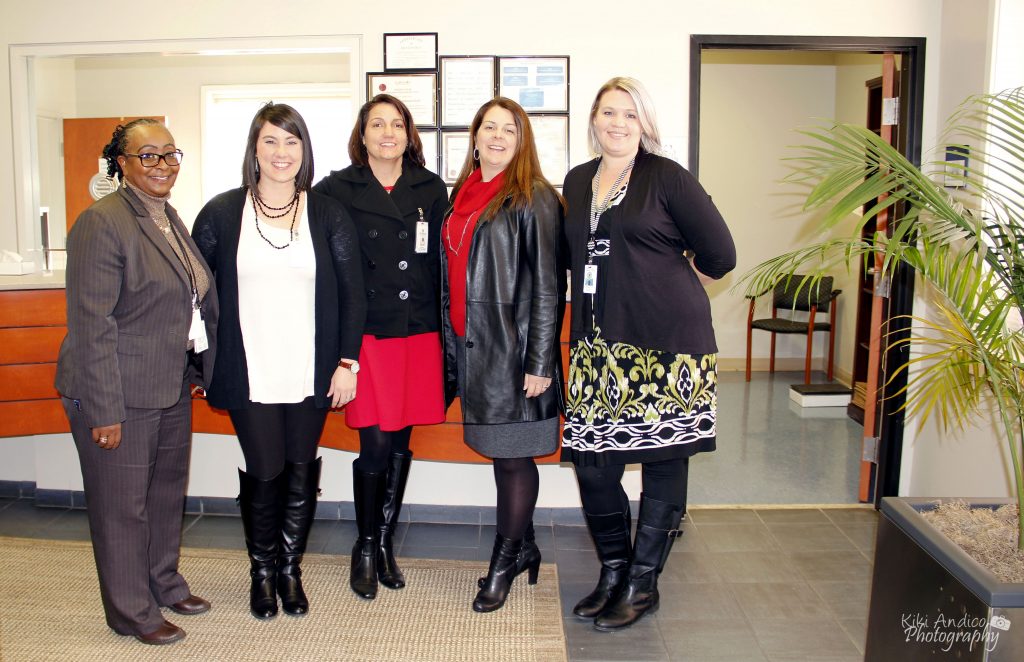
Rogea Gaymon, Phoenix Center Outpatient Clinical Director
Casey Burke, Mental Health Accountability Court Case Manager
Chrystal Wasden, Phoenix Center Specialty Clinical Director
Judge Katie Lumsden, Superior Court Judge
Katie Barrs, Mental Health Accountability Court Coordinator
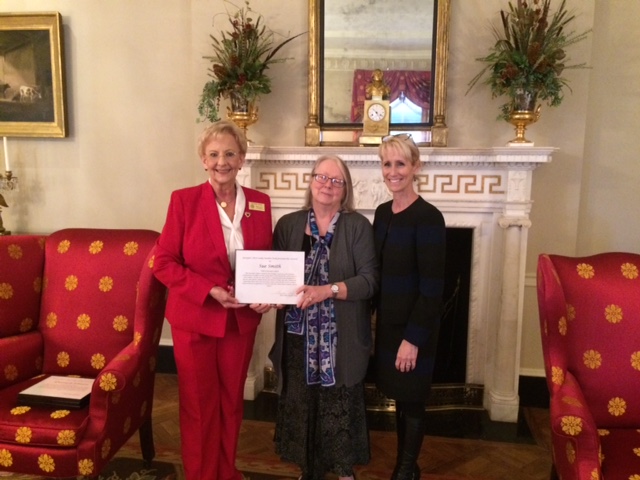
In 2011, First Lady Sandra Deal chose her platform to be “With a Servant’s Heart.” Volunteerism, community involvement and utilizing talents for the betterment of the community is its foundation. As chair of the Georgia Children’s Cabinet, First Lady Deal would like to recognize Sue Smith who embodies “With a Servant’s Heart;” as an outstanding individual who dedicates time and resources to helping children and families. Pictured from left to right are, First Lady Sandra Deal, Sue Smith, & Commissioner Fitzgerald.
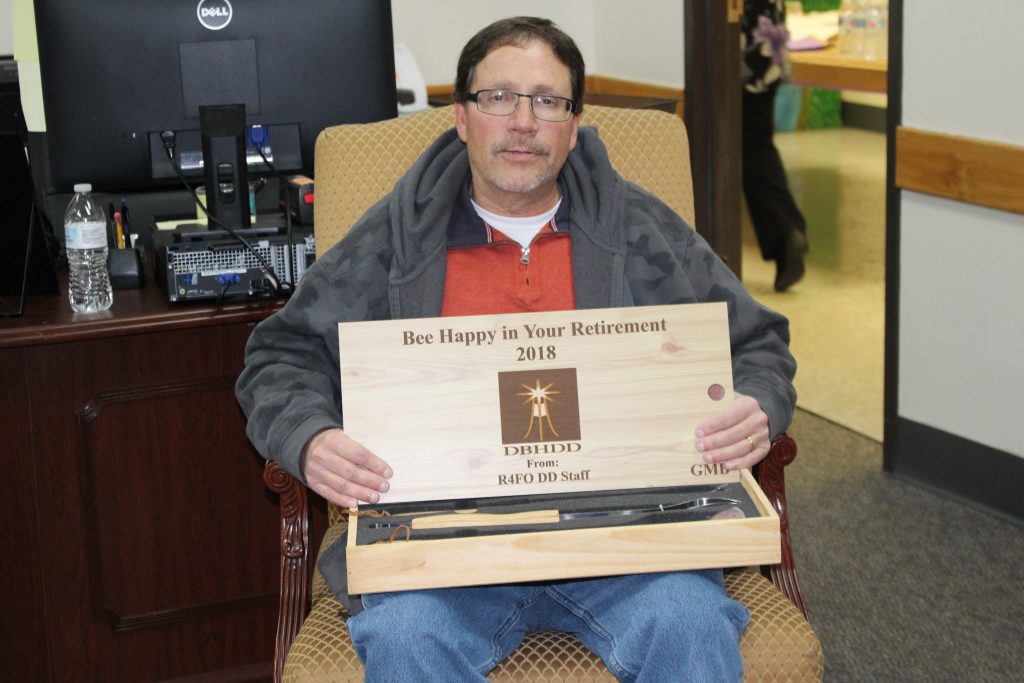
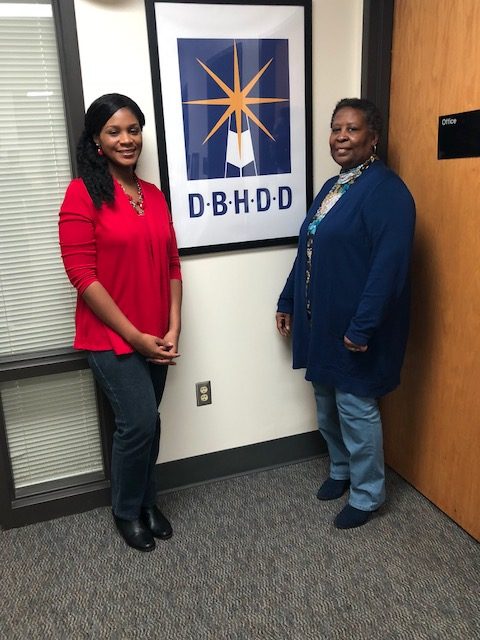
DBHDD was center stage at the Georgia Mutual Aid Task Force meeting on June 16, 2017. The MATF is a quarterly meeting held at the Georgia Public Safety Training Center in Forsyth, GA, and attendees representing healthcare organizations from all over the state meet to share ideas and best practices in emergency preparedness.
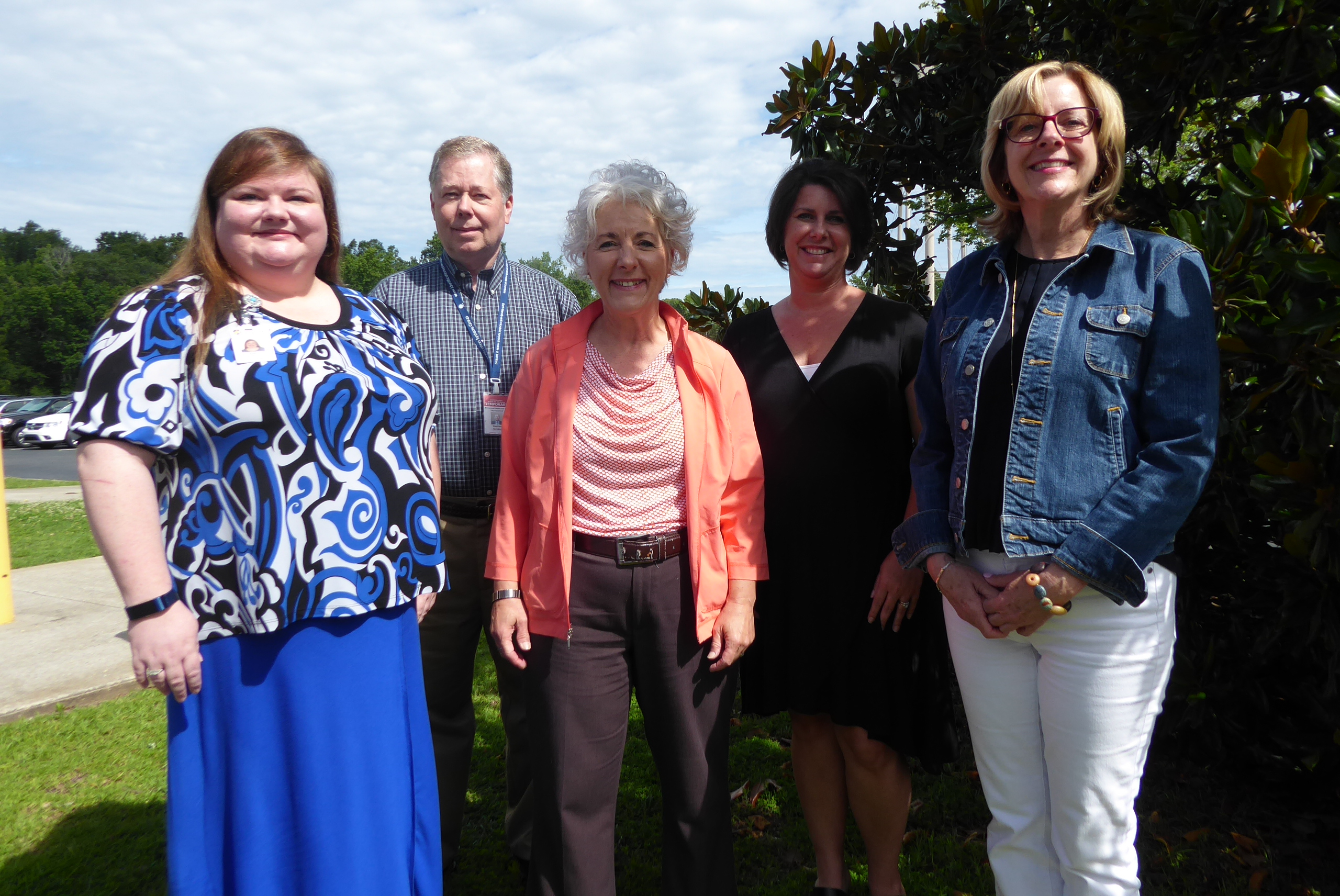
DBHDD’s Catherine Ivy, Director of Community Services for the Division of Developmental Disabilities, gave a presentation highlighting the shift from an institutional-based model of health care delivery to a community-based system of care for individuals with intellectual and developmental disabilities. Ms. Ivy emphasized the importance for disaster planners to have an understanding of the needs of this populations so they can collaborate with service providers to meet those needs during times of disaster.
Steve Herndon, Project Director for the Georgia Recovery Project, works out of DBHDD’s Office of Adult Mental Health in Division of Behavioral Health. Mr. Herndon gave a presentation on the Georgia Recovery Project, which is a FEMA funded crisis counseling program for the survivors of the January 2017 tornadoes in South Georgia. The GRP operates out of Aspire Behavioral Health Services serving Dougherty and Worth counties and Behavioral Health Services of South Georgia and serving Berrien, Cook and Turner counties. The GRP is a program that provides outreach to the tornado survivors and services include: individual and group counseling, psychoeducation, assessment, referral and linkage to resources.
There were representatives from two CSBs at the MATF meeting as well. Sabrina Tuten from Unison Behavioral Health was there with her local disaster planning partners from the Region M healthcare coalition in southeast Georgia. Region M’s leadership comes from Memorial Satilla Health and GA Department of Public Health District 9-2 in Waycross. Babs Hall, from Aspire Behavioral Health out of Albany, GA, also attended the meeting. Ms. Hall is the Team Leader for Aspire’s GRP and oversees all aspects of the crisis counseling program for Dougherty and Worth counties. In addition to supervising 13 staff members, Babs has done an excellent job networking with other agencies involved in the tornado recovery and she’s had much success marketing the program through local media outlets.
Behavioral health and intellectual and developmental disabilities have always been underrepresented at MATF and other disaster planning meetings but it doesn’t have to be that way. Providers are encouraged to attend future meetings and get involved with their local healthcare coalition. The next meeting of the MATF is on Friday, September 15, 2017 at the Georgia Public Safety Training Center, 1000 Indian Springs Road in Forsyth, GA from 9:00 AM to 2:30 PM and lunch is provided. Attending one of these meetings is a great way to meet your local disaster planning and response partners and learn about trends and best practices in the field of disaster preparedness and response. If you’d like more information about MATF and disaster planning contact DBHDD’s Disaster Mental Health Coordinator, Jeannette David, at Jeannette.david@dbhdd.ga.gov.
Press Release -Washington, DC (May 25, 2017) – The tenth Annual Ramstad/Kennedy Award for outstanding leadership recognizes Cassandra Price, Director of Addictive Services in the Georgia Department of Behavioral Health and Developmental Disabilities, who is being honored for her leadership in recovery support programs across her state and nationally. The award was established in honor of Congressmen Jim Ramstad and Patrick Kennedy. The two Congressmen have been vocal advocates of recovery support services in all forms, and championed localized efforts to support prevention, treatment and recovery.
The Substance Abuse and Mental Health Services Administration (SAMHSA) recognizes that long-term recovery is not only possible, but is the goal of addiction and mental illness treatment and support programs. The 2017 honoree has worked to spread this positive message and the message that prevention can be effective in helping to break the cycle of addiction in families.
Cassandra designed the program to support families dealing with addiction and those whose loved ones are in recovery. She is recognized for her leadership and untiring spirit for the field, the state and most importantly for those whose lives have been touched by substance use disorders. “She has worked to engage state agencies and create change, statewide, that will provide enduring resources for residents and encourage recovery for the future benefit of Georgia families and communities,” said Sis Wenger, National Association of Children of Alcoholics (NACoA), a Recovery Month partner.
“Together in partnership with the dedicated organizations who comprise the Recovery Month Planning Partners, recovery success stories have become commonplace in Georgia, in part because of Cassandra’s on-going and exceptional commitment,” Wenger continued.
“The recipient of the Ramstad/Kennedy award embodies the innovation of a leader dedicated to support prevention, treatment and recovery in their community. On behalf of over 200 collaborating organizations in the Recovery Month Planning Partners, we congratulate Cassandra on her vision and commitment” said Recovery Month partner Marie Gallo Dyak, President of the Entertainment Industries Council, Inc.
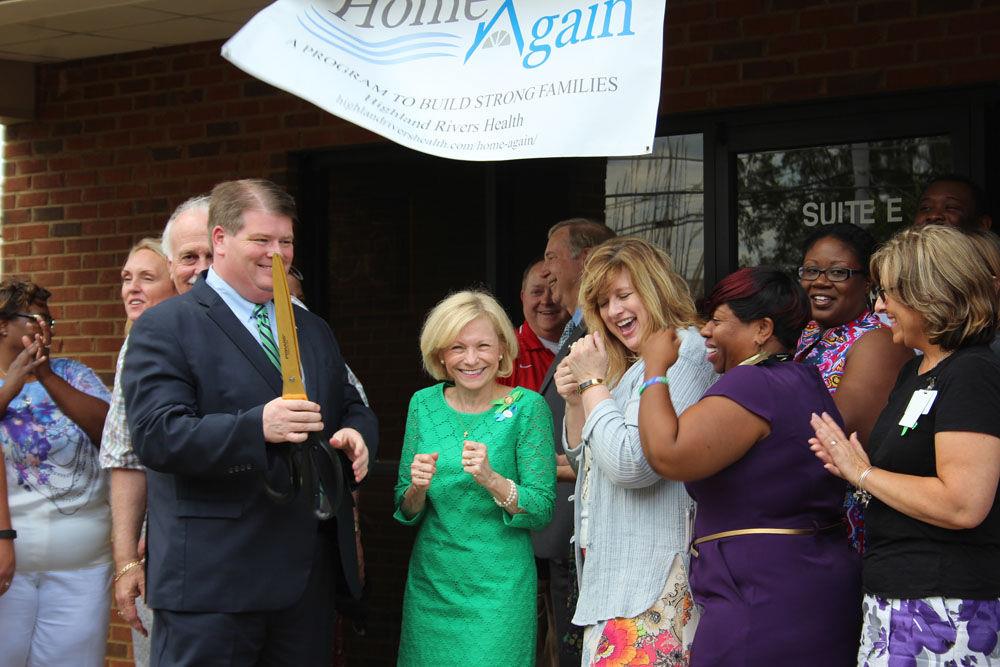
Highland Rivers Health and its supporters celebrated Thursday another tool aimed at keeping local children out of the foster care system.
The brainchild of CEO Melanie Dallas, the Home Again program offers customized help for Floyd County kids, ages 8 to 18, and their families with mental health problems.
“In Georgia, as a whole, we don’t do enough to support families in crisis,” she said. “And Floyd is one of the top in the state for the number of foster kids placed outside their home county.”
She came up with a short-term, intensive, program that teaches children and their parents hw to handle the problems — such as depression, drugs, aggression, self-harm and truancy — that threaten to tear them apart.
“We try to get families so they can live in the home together, Home Again,” Dallas said.
There’s one in Gordon County, and the Floyd County office at 1838 Redmond Circle, Suite E, held a ribbon-cutting Thursday. A third is planned for space in Pickens County.
Dallas said the program is funded by the Georgia Department of Behavioral Health and Developmental Disabilities and will soon be a Medicaid-reimbursable service.
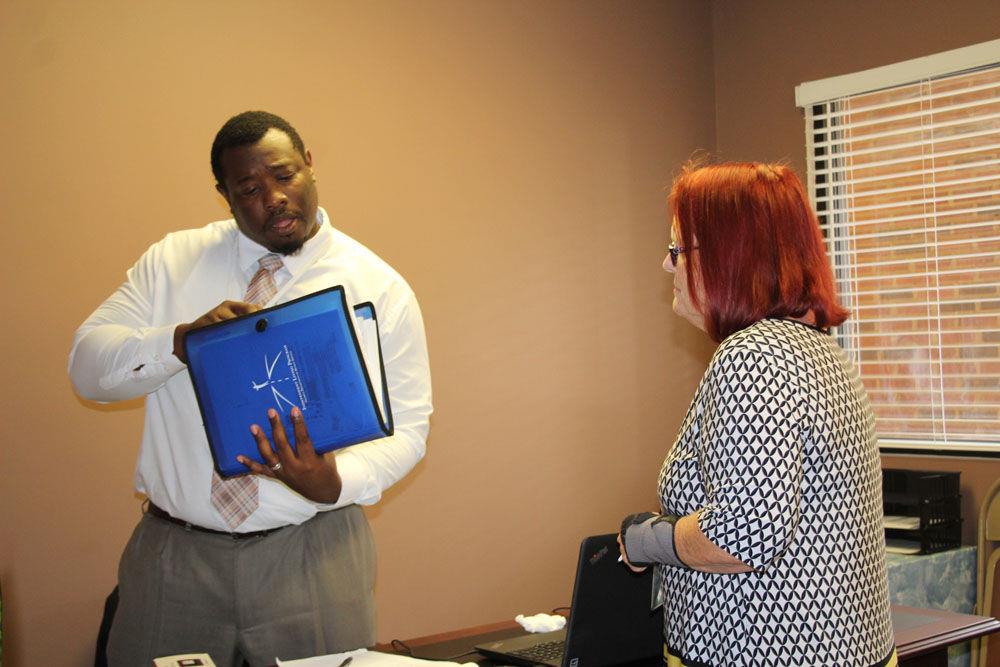
Rep. Katie Dempsey, R-Rome, championed the program by working to ensure start-up funding in the 2016 state budget.
Highland Rivers Health board chair Chief Magistrate Allen Wigington (with scissors, from left), state Rep. Katie Dempsey (R-Rome), Highland Rivers CEO Melanie Dallas and Tawanda Scales with the Georgia Department of Behavioral Health and Developmental Disabilities, celebrate the opening of Highland Rivers’ Home Again office at 1838 Redmond Circle Thursday.
She said many children who end up in foster care come from families with mental or behavioral problems, including addiction. Home Again targets those issues.
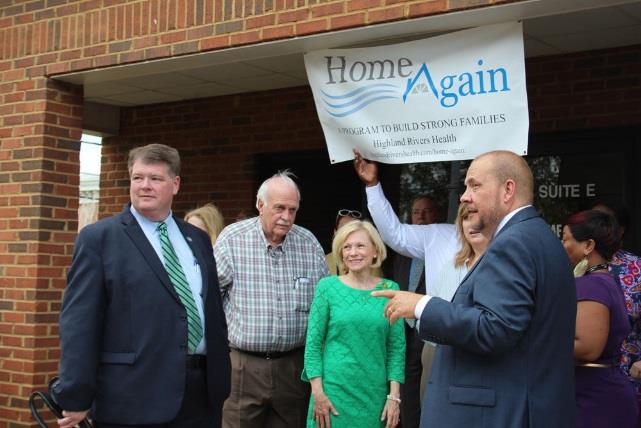
“It could be for the parents. It could be for the child. But it’s to try to get ahead of the situation,” Dempsey said. “We try to keep the family together because, almost always, the child wants to stay with a parent.”
Ricardo Bermudez the program therapist, is currently working with eight families. He said they could be referred through the Georgia Department of Juvenile Justice — or by anyone, including teachers, doctors, pastors, neighbors and the parents themselves.
“These are kids who potentially would be moved out of their homes,” he said. “The goal is to re-establish the unity within the families, to stabilize them.”
The Floyd office can serve up to 10 families, Dallas said, but she’s advertising for another licensed therapist and will then be able to double the number.
For information about the program, visit the HighlandRiversHealth.com website, email homeagainfloyd@highlandrivers.org or call 706-784-4175, extension 4702.
Diane Wagner May 19, 2017
view on NorthWestGeorgiaNews.com
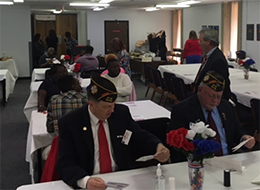 West Central Georgia Regional Hospital, along with three veterans service organizations, hosted a special recognition lunch event for staff, client, and special guest veterans in observance of Veterans Day last month.
West Central Georgia Regional Hospital, along with three veterans service organizations, hosted a special recognition lunch event for staff, client, and special guest veterans in observance of Veterans Day last month.
The local veterans service organizations included the American Veterans (AMVETS) Post 9, Veterans of Foreign Wars (VFW) Post 12110, and the Marine Corps League Detachment 1402. The mission of these organizations is to assist veterans and their families.
The event was coordinated by WCGRH staff member Brent Eaton, who is also a veteran and member of the veterans service organizations which supported the event. Volunteers who also helped put on the event included hospital staff members of the employee appreciation function team. Guests included Edward L. Richards post commander of AMVETS, Donald Anthony Commander of VFW Post 12110, Mackey Carter Chaplain of VFW Post 12110, Charles Youmans member of AMVETS and VFW.
Regional Hospital Administrator John Robertson welcomed the guests, and Eugene Brown provided the invocation. Brent Eaton awarded 50 staff and client veterans with a certificate of appreciation for their years of service in the United States Military. Veteran and active duty service members represented included the U.S. Army, Navy, Air Force, Marines, National and State Guard, and Army Reserve.
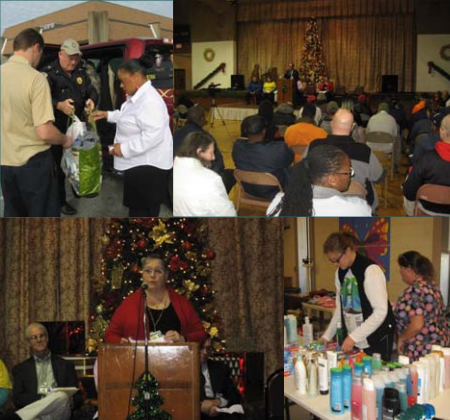 Cities across Georgia participated in the 58th annual Georgia Municipal Association’s Mayors’ Christmas Motorcade, donating gifts to individuals at DBHDD’s state hospitals.
Cities across Georgia participated in the 58th annual Georgia Municipal Association’s Mayors’ Christmas Motorcade, donating gifts to individuals at DBHDD’s state hospitals.
The event is named for its inaugural 1959 procession which provided gifts to individuals living at what is now Central State Hospital in Milledgeville. Governor Ernest Vandiver started the motorcade in 1958 to raise awareness for mental health across the state.
“The Mayors’ Motorcade is sort of the centerpiece of the hospital’s holiday celebration because [the people we serve] don’t have an opportunity to go home to their families,” said Andy Mannich, regional hospital administrator for Georgia Regional Hospital in Savannah.
According to the association, the fund and gift drive brings comfort items and personal necessities to more than 1,000 people with developmental disabilities and behavioral health needs.
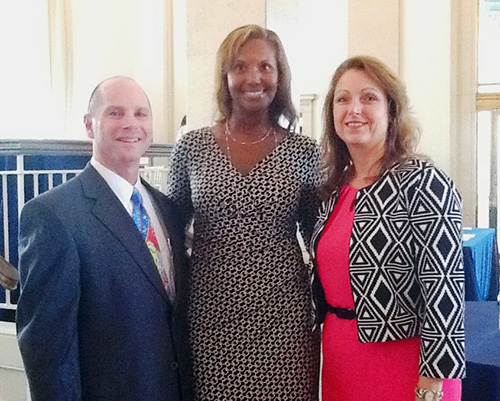
On September 9, 2015, DBHDD hosted the first annual Creative Recovery Art Exhibit showcasing the talents of people who live with mental health challenges, and the role that creative outlets like art can play in the recovery process. Held at the Venetian Room at Hurt Plaza in downtown Atlanta, the event drew a crowd of about 75 people. It was sponsored by DBHDD’s Office of Adult Mental Health and NAMI Georgia, and featured artwork submitted by people who receive or have received services from DBHDD’s adult community mental health providers.
Research has shown that many individuals in recovery from mental health challenges report the importance of art as an integral component of their recovery journey. Writing, painting, drawing, jewelry-making, and other arts are enjoyable activities which can also be a portal for expression of emotions and experiences that individuals may not have been able to express in any other way. Art is used in many community mental health programs in Georgia as a powerful healing tool to help individuals explore deep emotions—the sadness, the hopelessness, the fear, and eventually the relief, the joys, and the hope of a new day.
“Art has been a huge part of my recovery,” said Candy C., one of the exhibit’s featured artists. “When I had been at my lowest point, picking up my pencils has helped me tremendously. I oftentimes find myself in another world, a quite beautiful world where creativity takes place inside of me. When life appears dark, pencil in hand, provides an outlet which is indescribable. I am so grateful to have this talent from God. I often find myself drawing when life seems unbearable. This allows me to find peace and harmony.”
Stephanie T., another featured artist who is now earns a living with her art, shared her enthusiasm about the art and recovery connection: “Give art inspiration—art will give your recovery so much more. Art is a process, the same as the recovery process. Art has contributed to my recovery by giving me proper solitude. . . . Because art and recovery are deeply personal, art and recovery is a very unique way of changing people’s attitudes, values, feelings, and goals. Earning a living as an artist is satisfying and contributes to life through meaning and purpose. . . . Art is a life-long passion that gives me the perfect balance of a meaningful life despite my mental illness.”
The also exhibit featured several other artists. Provider agencies represented included: Pineland CSB, View Point Health, Georgia Rehabilitation Outreach, Georgia Mental Health Consumer Network, Lookout Mountain, and McIntosh Trail.
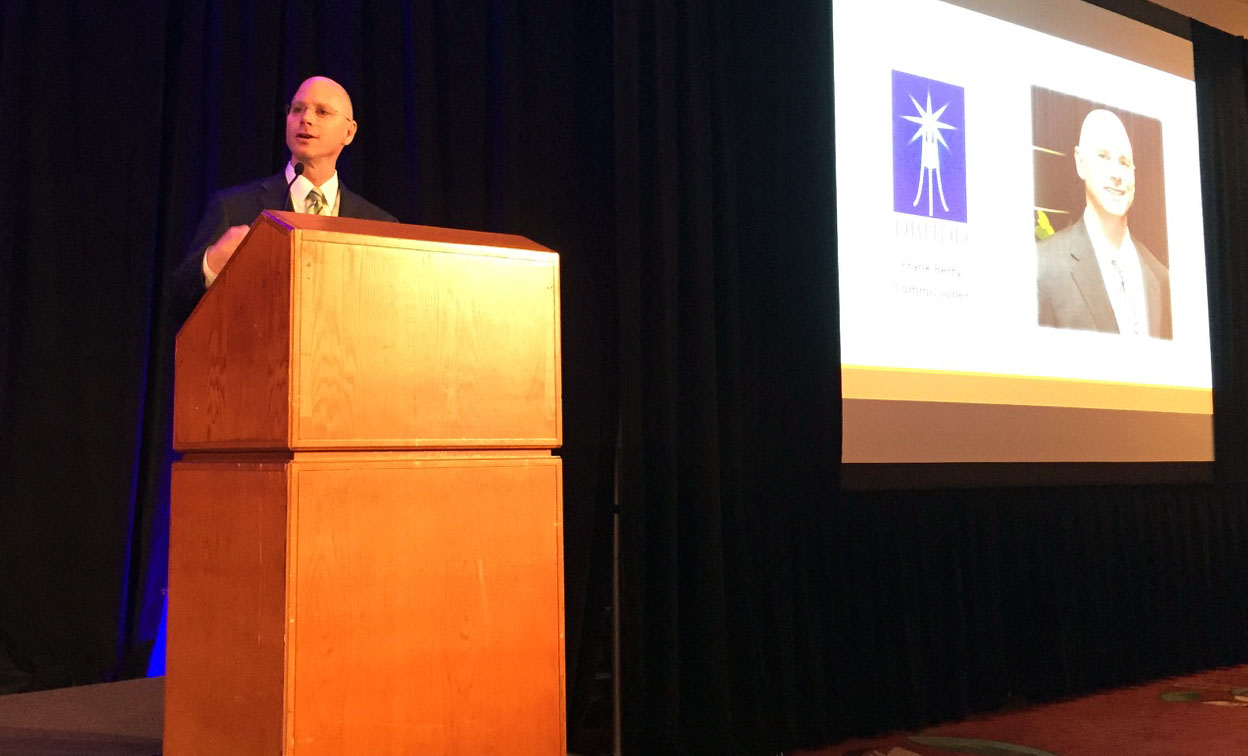 DBHDD hosted the 8th annual System of Care Conference at the Atlanta Evergreen Marriott in Stone Mountain. More than 500 providers, agency partners, advocates, youth and families attended the three-day event, which featured expert speakers, panels and workshops on children’s behavioral health care.
DBHDD hosted the 8th annual System of Care Conference at the Atlanta Evergreen Marriott in Stone Mountain. More than 500 providers, agency partners, advocates, youth and families attended the three-day event, which featured expert speakers, panels and workshops on children’s behavioral health care.
System of Care is a nationally recognized model designed to improve treatment and support for children and youth who have a serious emotional disturbance. The System of Care concept puts children and their families at the center of their treatment planning.
“Georgia’s System of Care is about embracing children and families,” said DBHDD Commissioner Frank Berry, who delivered Wednesday’s opening remarks. “We’re all working together to coordinate efforts to improve the care we deliver.”
The System of Care model emphasizes coordination between agencies and providers that serve Georgia’s children and the families and children they serve. This allows everyone in a child’s support system to focus on what is best for that child, and to minimize disruptions in his or her life.
“We provide better care to children and families when agencies and providers collaborate,” said Matt Yancey, who leads DBHDD’s Office of Children, Young Adults and Families. “Our job at the academy is to answer the question, ‘how can we serve Georgia’s children and families better?’”
Participants in Georgia’s System of Care work together to serve children in their own communities, aiming to reduce the need for out-of-home care in psychiatric residential treatment facilities, foster homes, or under supervision of the Department of Juvenile Justice. To learn more about DBHDD services for children and families, visit our website.
 DBHDD Deaf Services co-sponsored the Georgia Association for the Deaf Conference (GAD) held June 17 – 21 at the Jekyll Island Convention Center. The conference provided a forum where leaders exchanged valuable information about the promotion of the rights of Deaf people.
DBHDD Deaf Services co-sponsored the Georgia Association for the Deaf Conference (GAD) held June 17 – 21 at the Jekyll Island Convention Center. The conference provided a forum where leaders exchanged valuable information about the promotion of the rights of Deaf people.
This venue provided the first opportunity for the Deaf Services of DBHDD to introduce its new branding efforts to spread the vision of communication equity in the delivery of services. Deaf Services rolled out a new theme: Access, Inclusion, and Respect, and incorporated it within the booth concept and video. These three aspects communicate the commitment to change the course of communication service delivery.
“The Deaf Services team understands and appreciates the value of access; for without it, individuals cannot be heard. Our team focus remains advocacy for Georgia’s Deaf and Hard of Hearing citizens, ensuring that they have a voice in the process of service delivery,” said Dr. Candice Tate, Director of Deaf Services.
Dr. Tate hosted an open forum, encouraging the Deaf community to enter into a dialogue about their concerns and perception of the state of mental health and service delivery in Georgia’s Deaf community. Some of the issues discussed included group home administration and whether a dedicated Deaf group home could exist. Additional questions were poised concerning Deaf Services funding. In addition, quality of care questions and concerns on behalf of immediate family members were raised about how to qualify and obtain services for their respective family members.
DBHDD Deaf Services sought to deliver the educational message by modeling respect for each individual at the conference by actively engaging each participant, answering their questions, and providing information face to face. Kelly Stockdale, a Deaf Operations Analyst for DBHDD, said, “Being able to model these concepts of access, inclusion and respect in an environment of open dialogue, where we are listening to others, allows us to gather the information that will support removing barriers, and positions the team to define, implement, and measure the effectiveness of our services.”
Other topics discussed during the conference included the use of video remote interpreting (VRI) in hospitals, the challenges of utilizing VRI and the impact of replacing live interpreters. The DBHDD Deaf Services focus on inclusion and respect correlated with Chris Wagner’s discussion of oppression, both within and external to the Deaf community. Additional topics included a presentation by “HEARD” (Helping Educate to Advance the Rights of the Deaf) concerning the advocacy of rights for Deaf individuals held or incarcerated within the local, county, and state legal systems.
The GAD Conference continues to provide a forum where key information within and about the Deaf and Hard of Hearing communities can be shared. Partners and stakeholders include a cross-section of individuals with a vested interest in the Deaf community. This group remains dedicated to the protection and promotion of the rights of the Deaf through advocacy.
